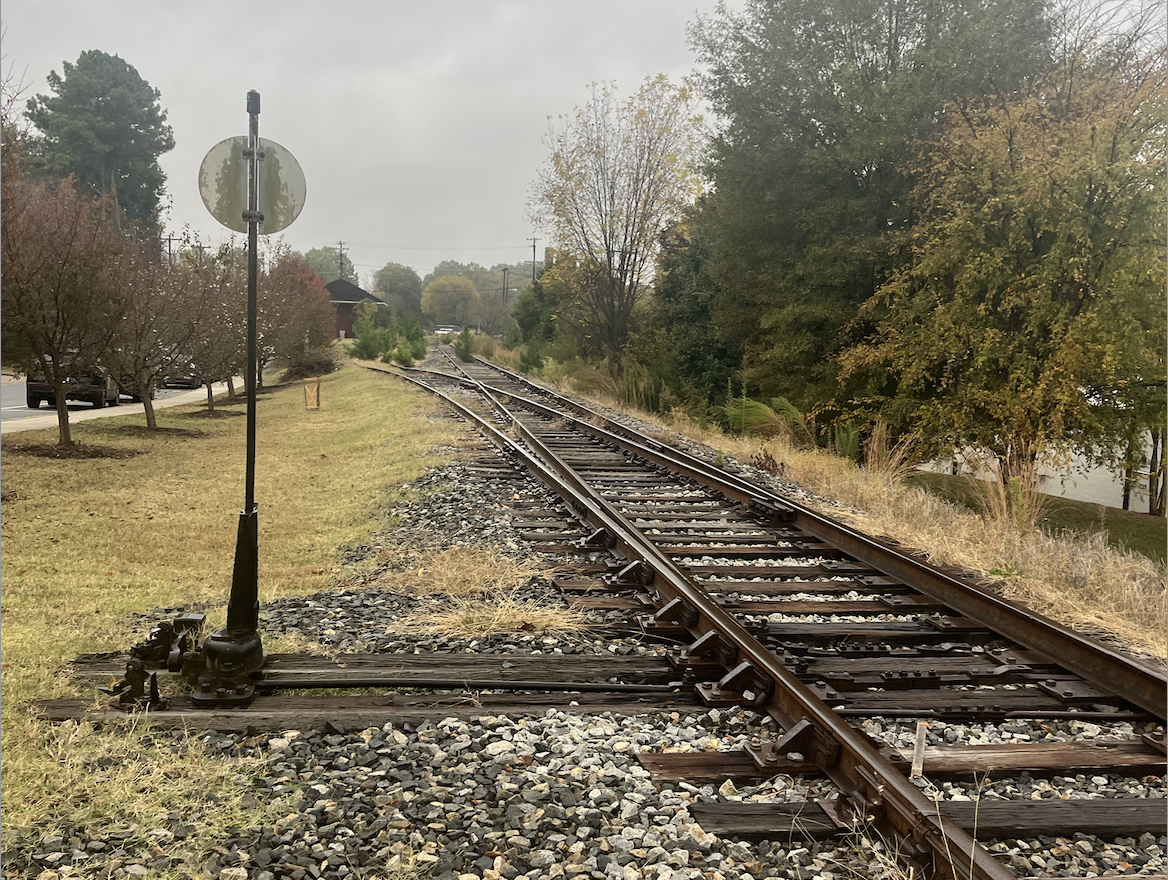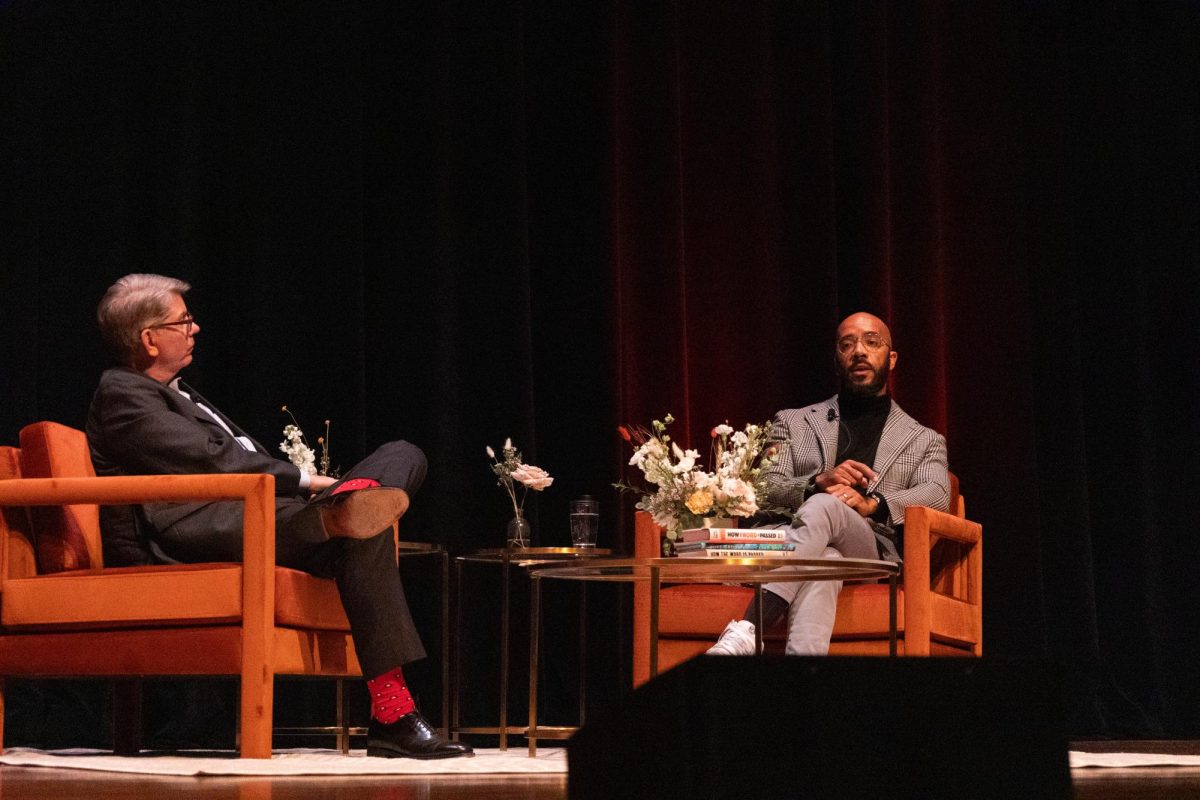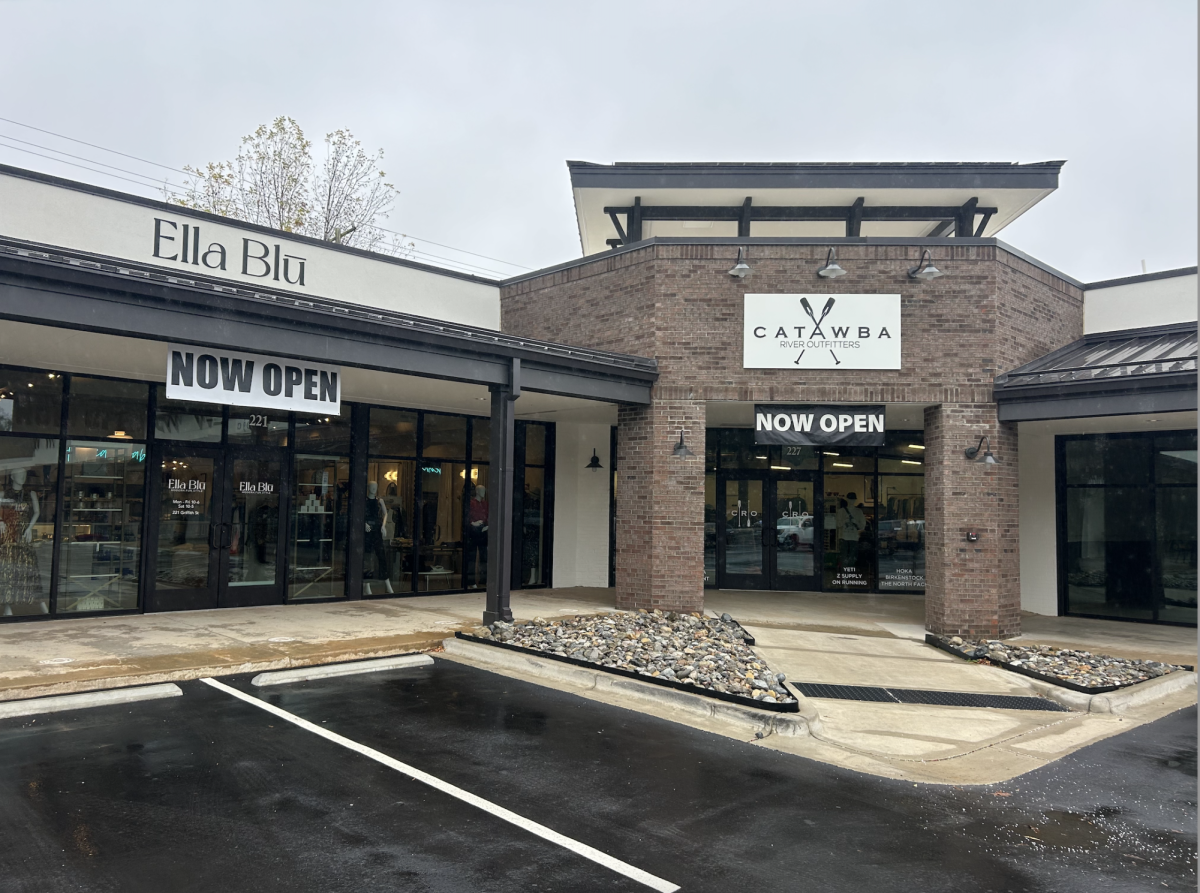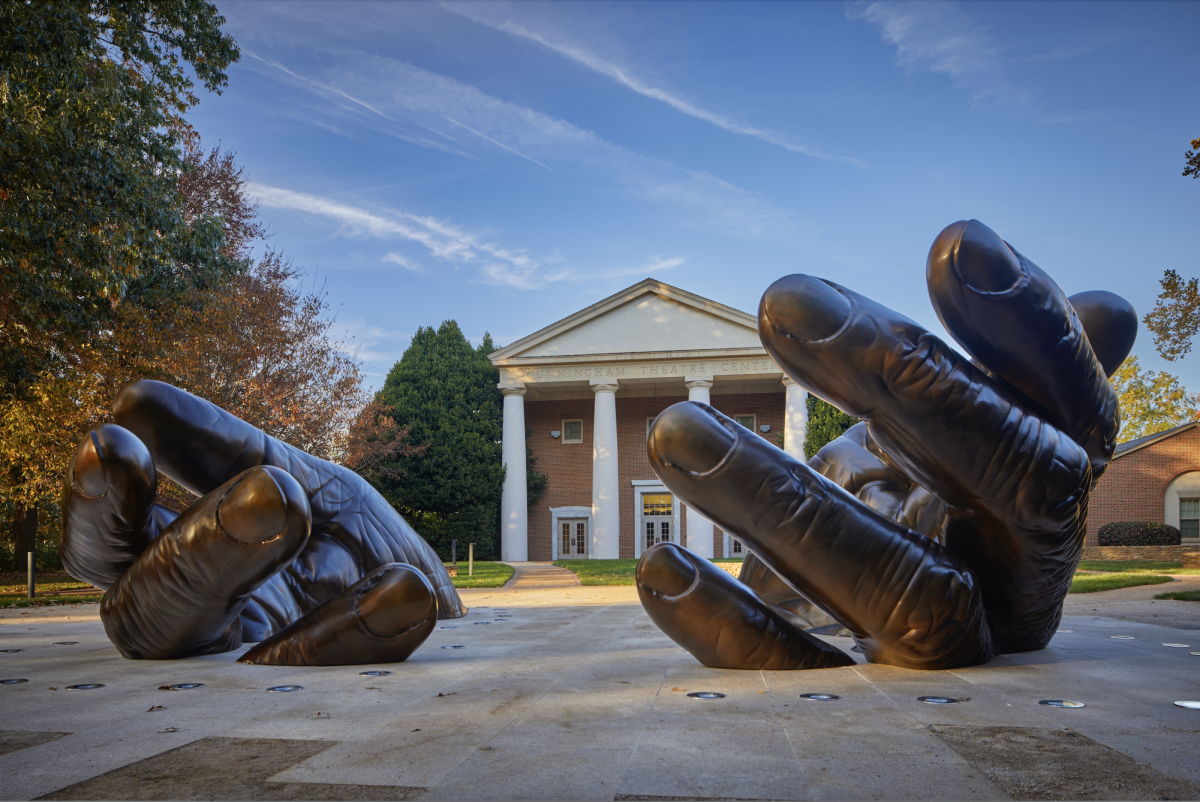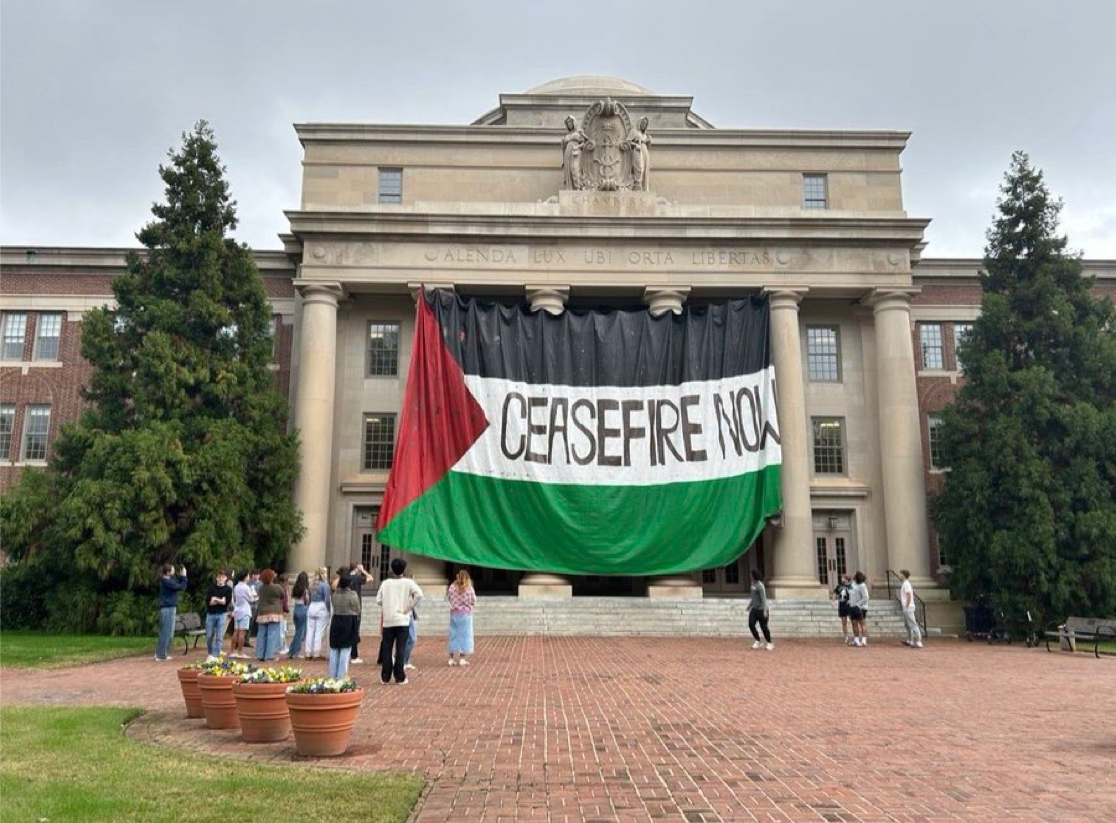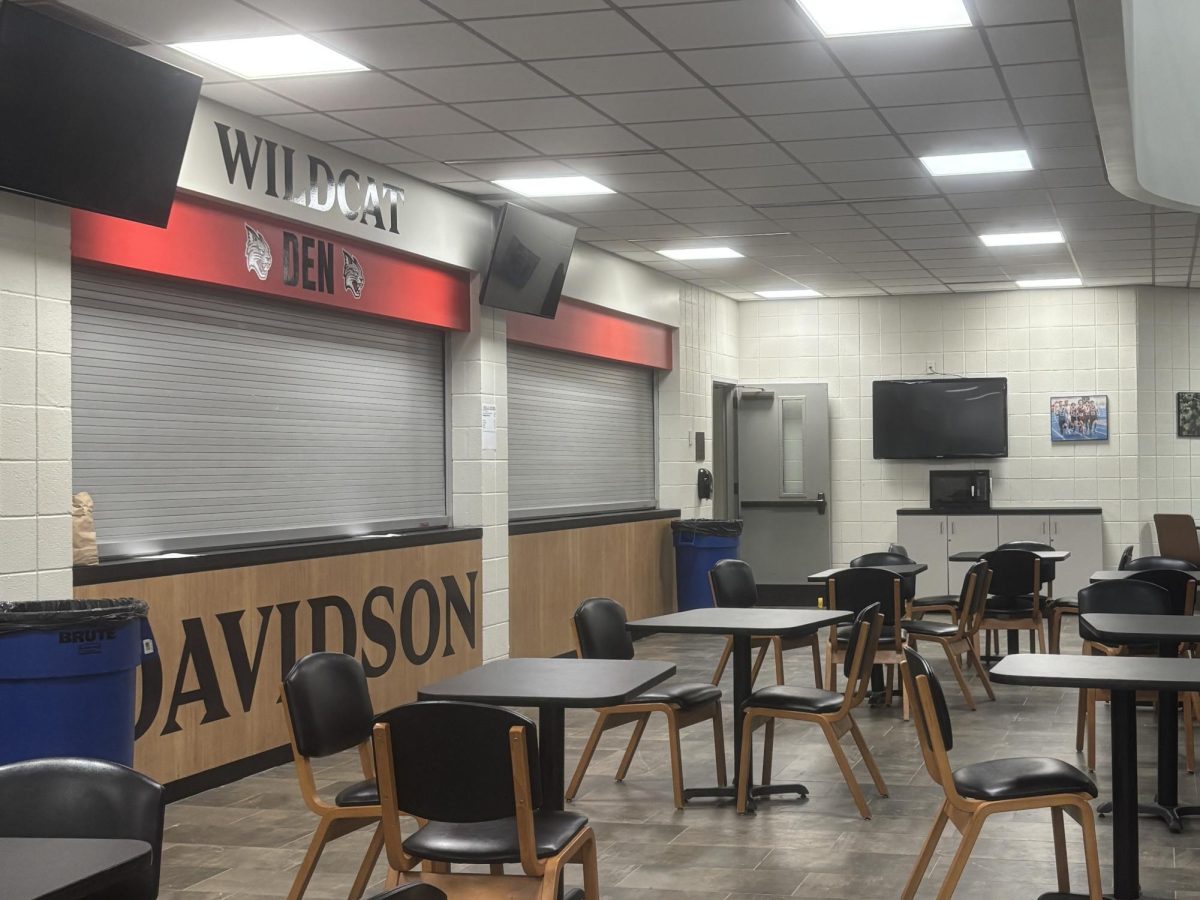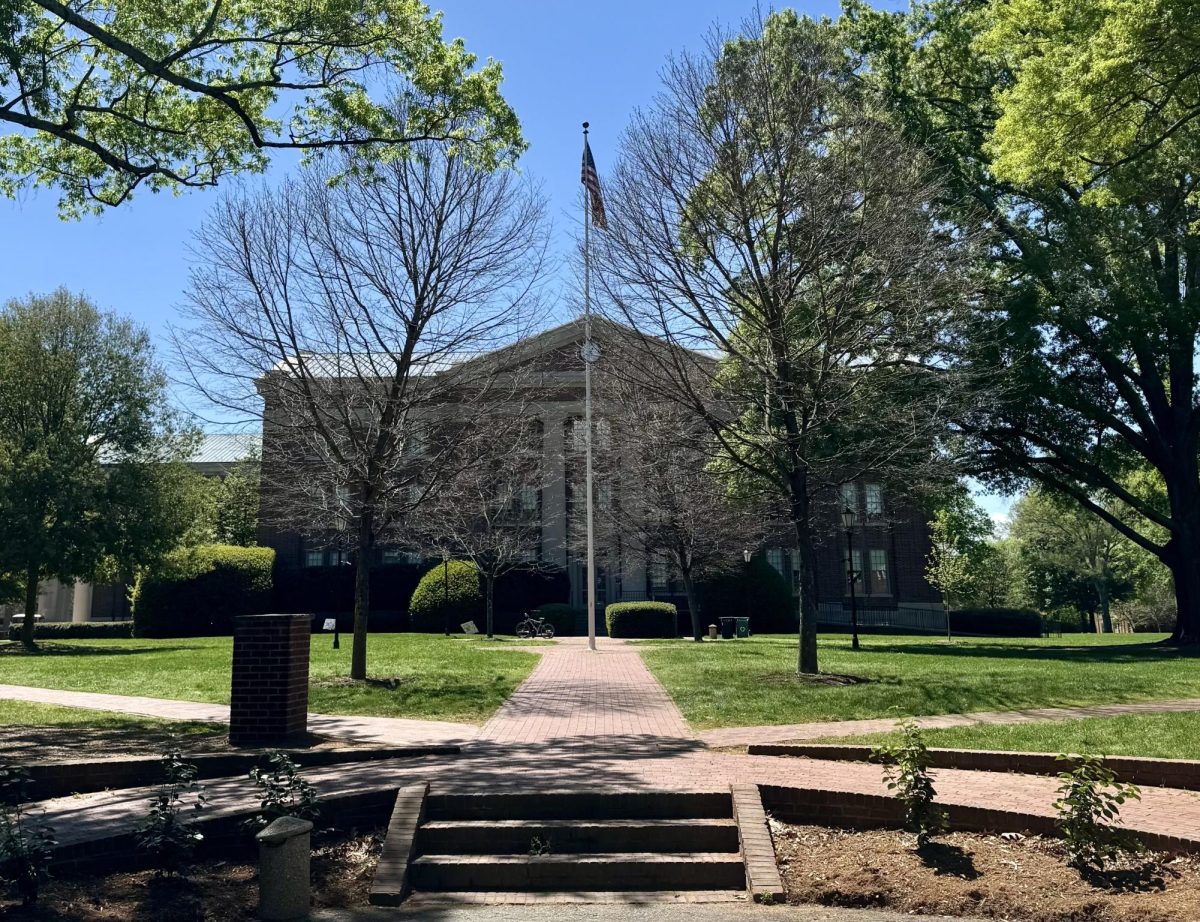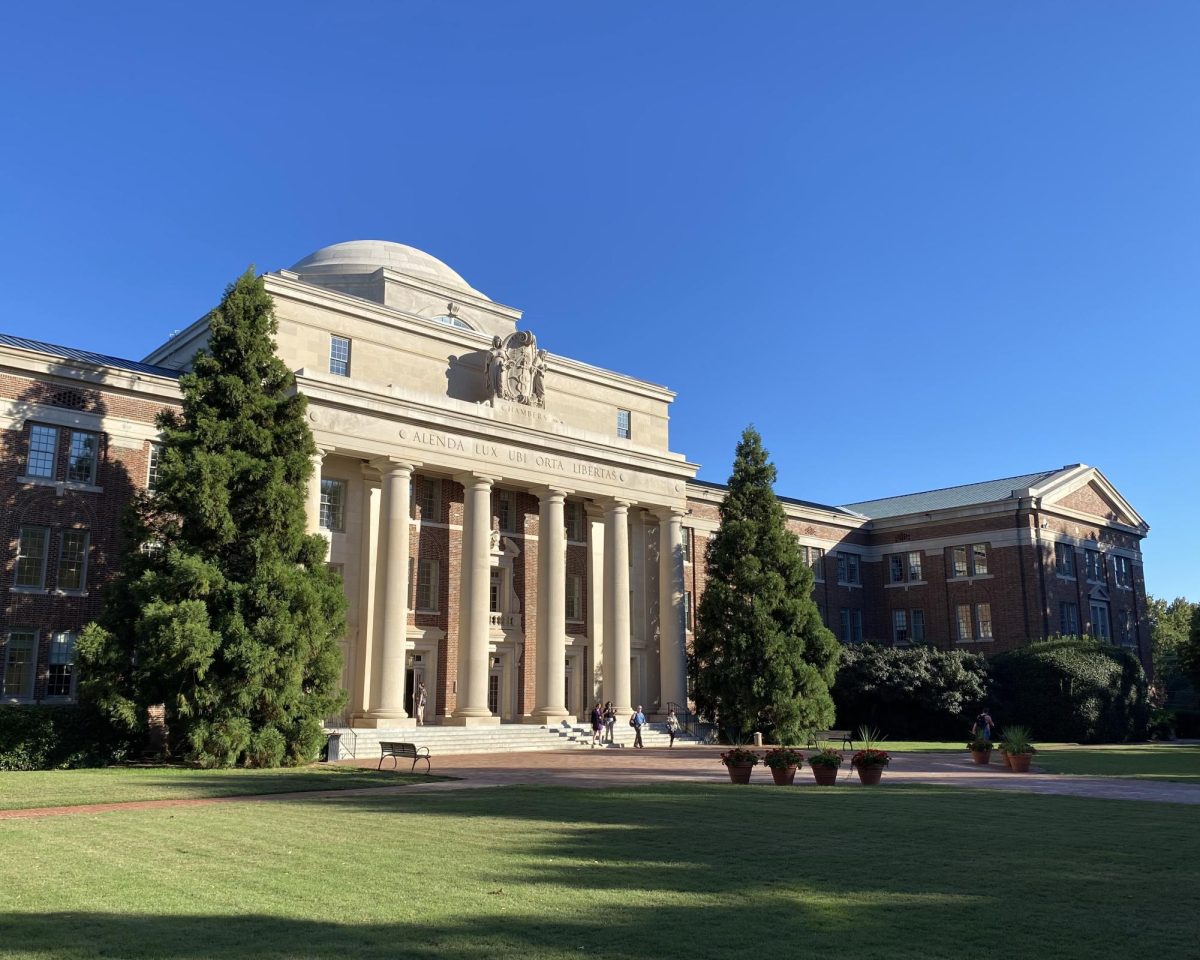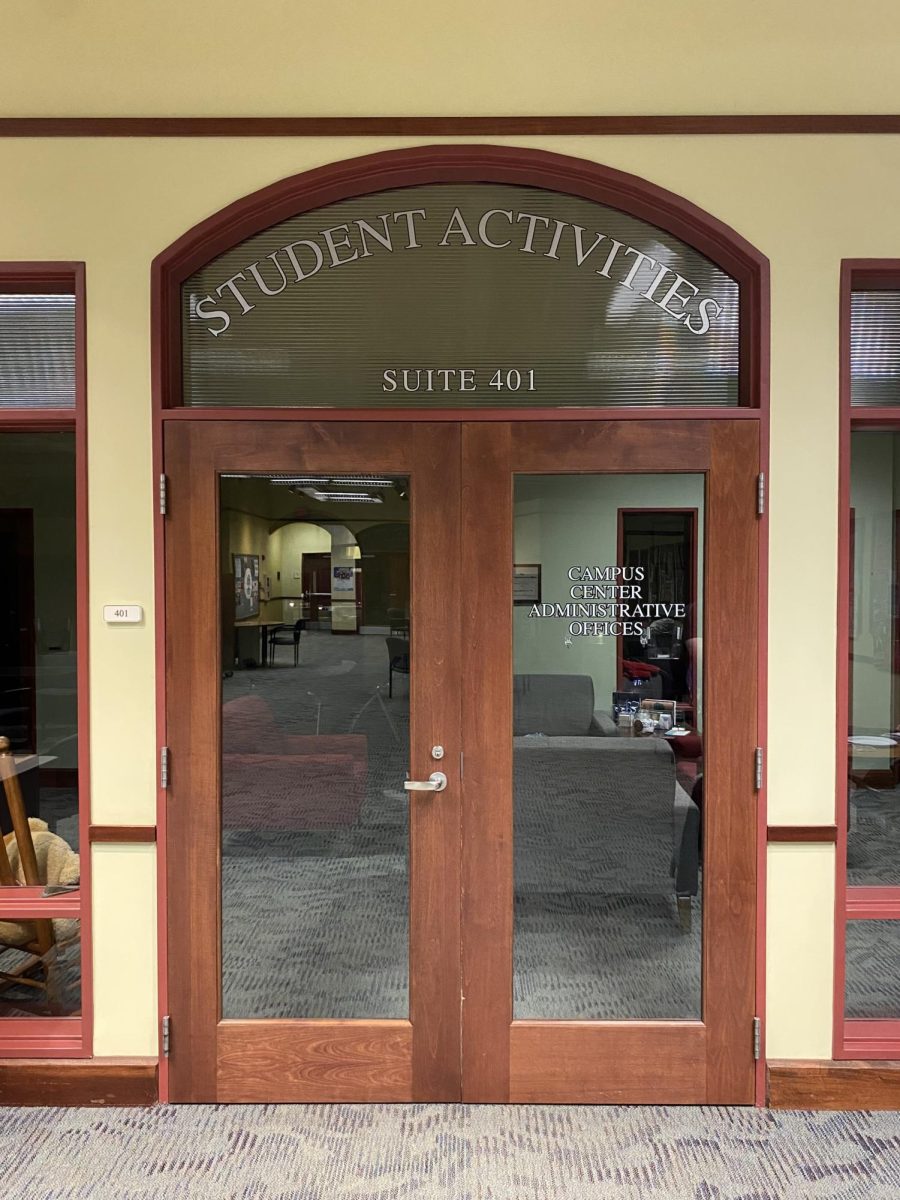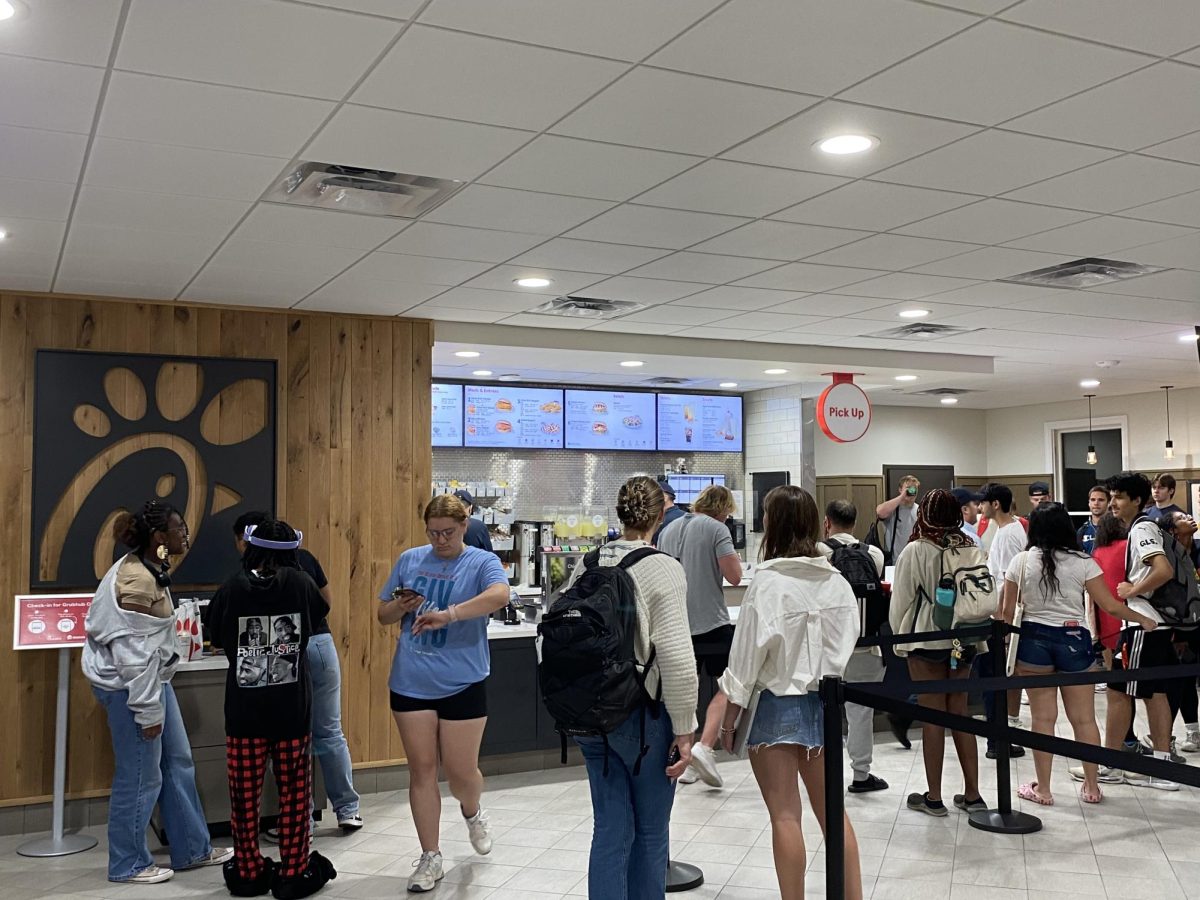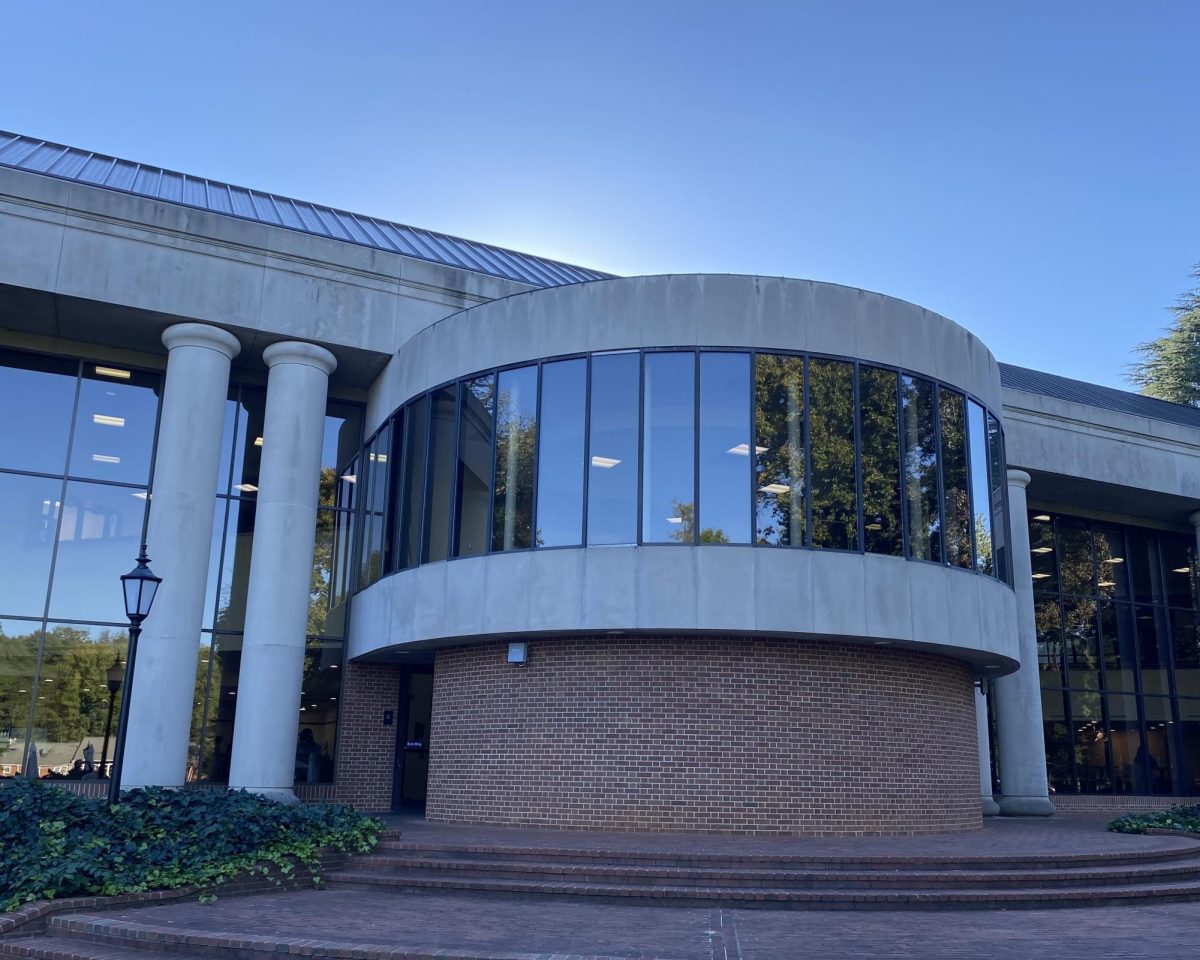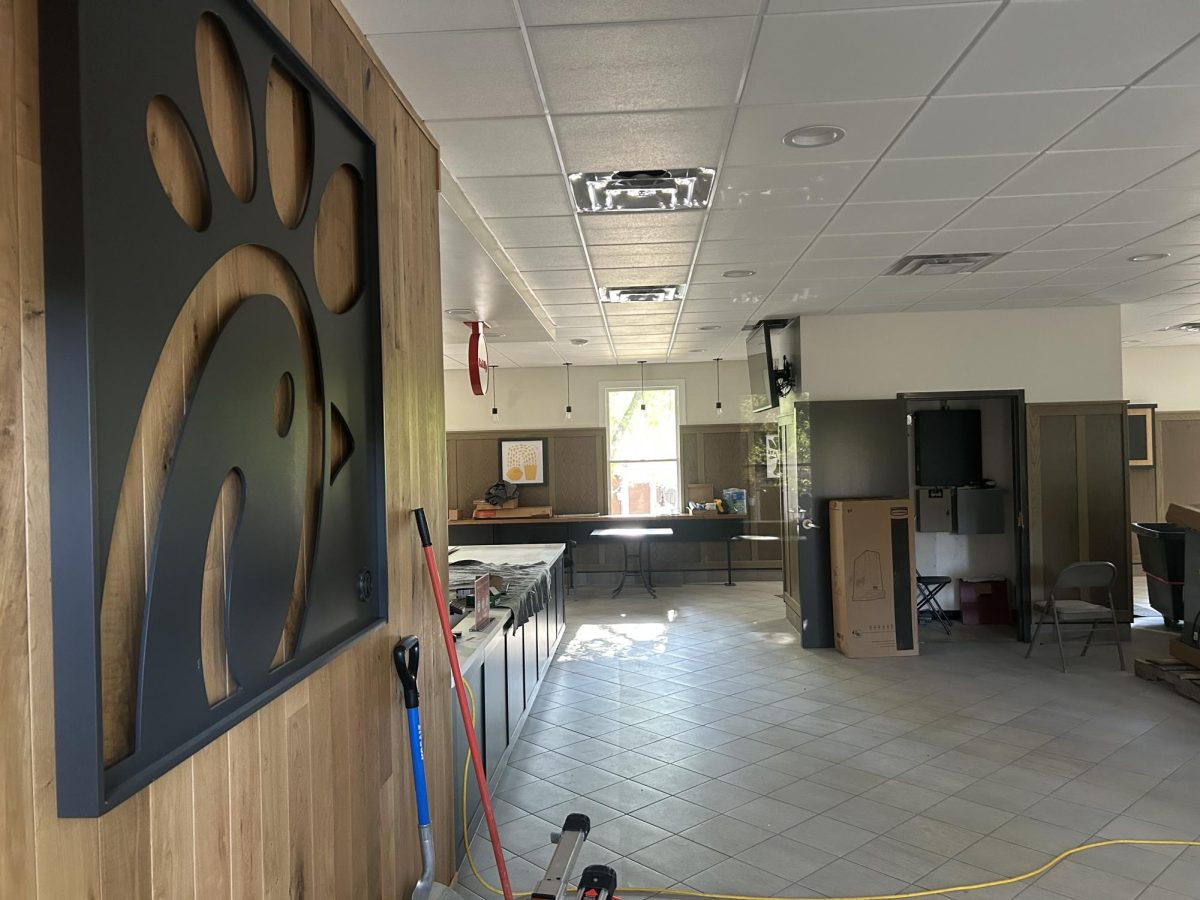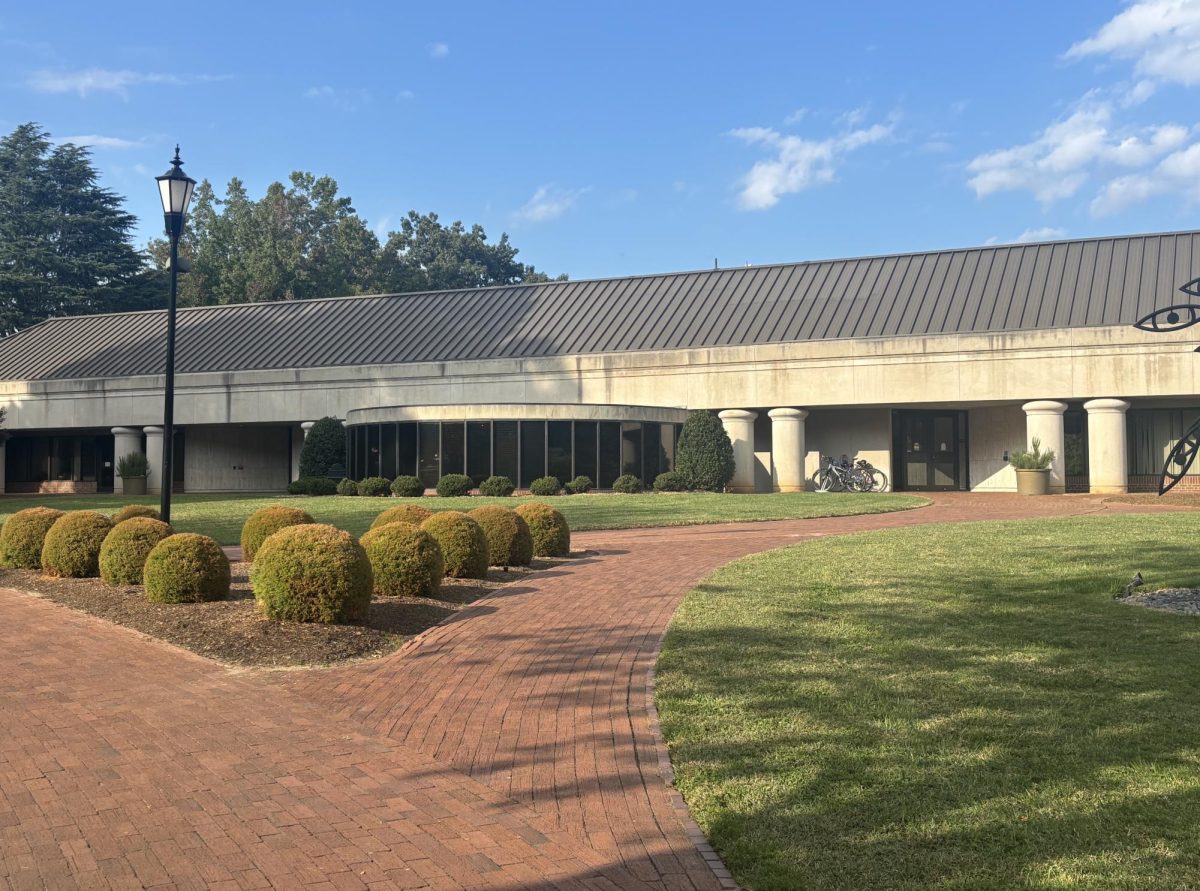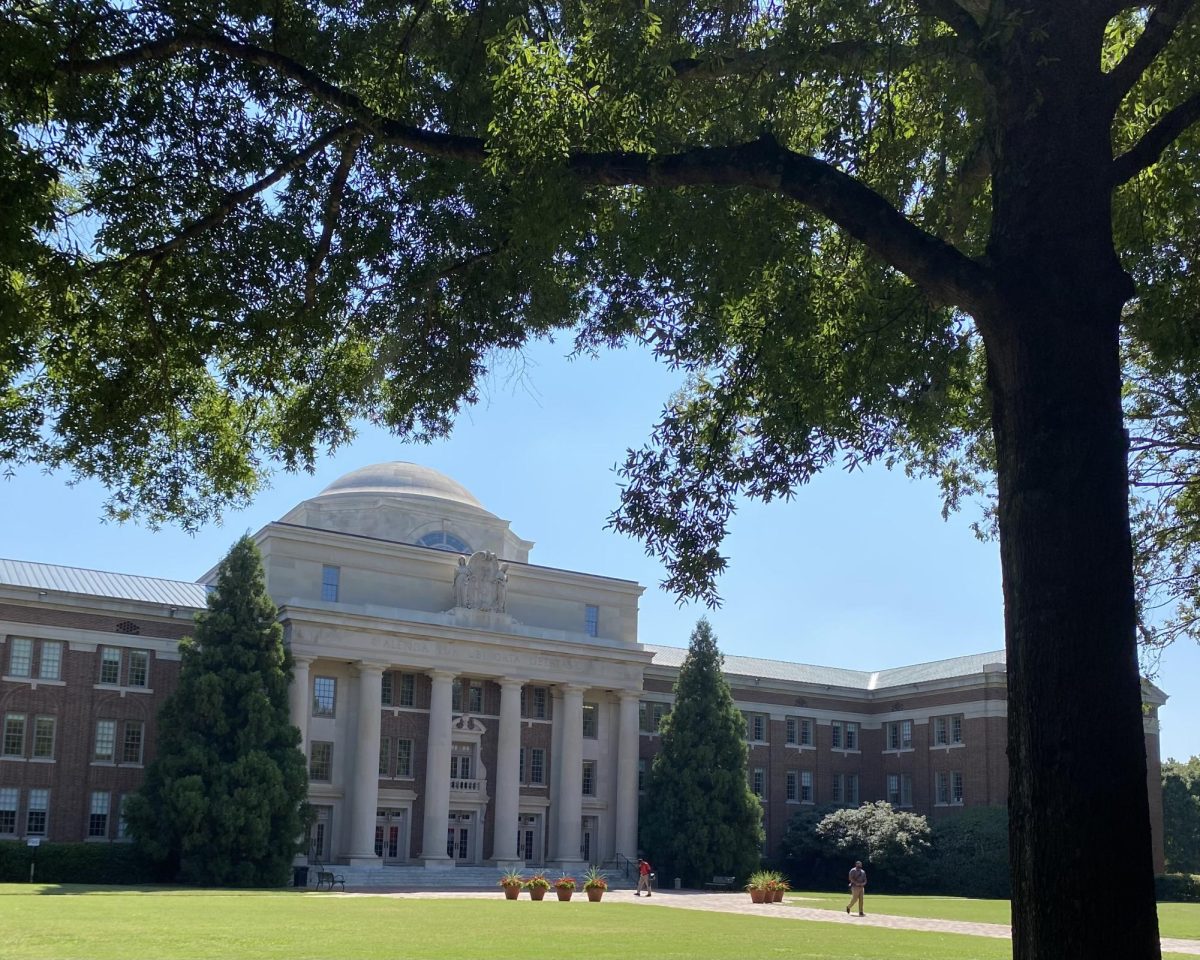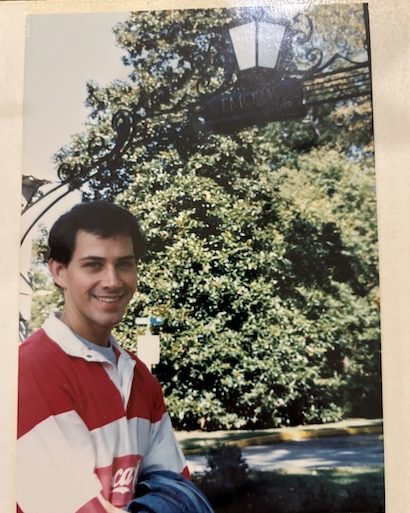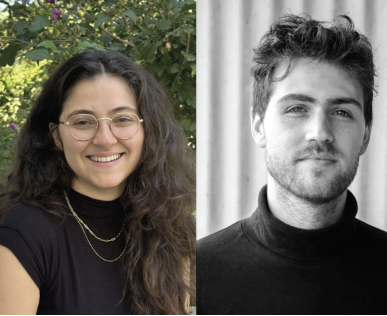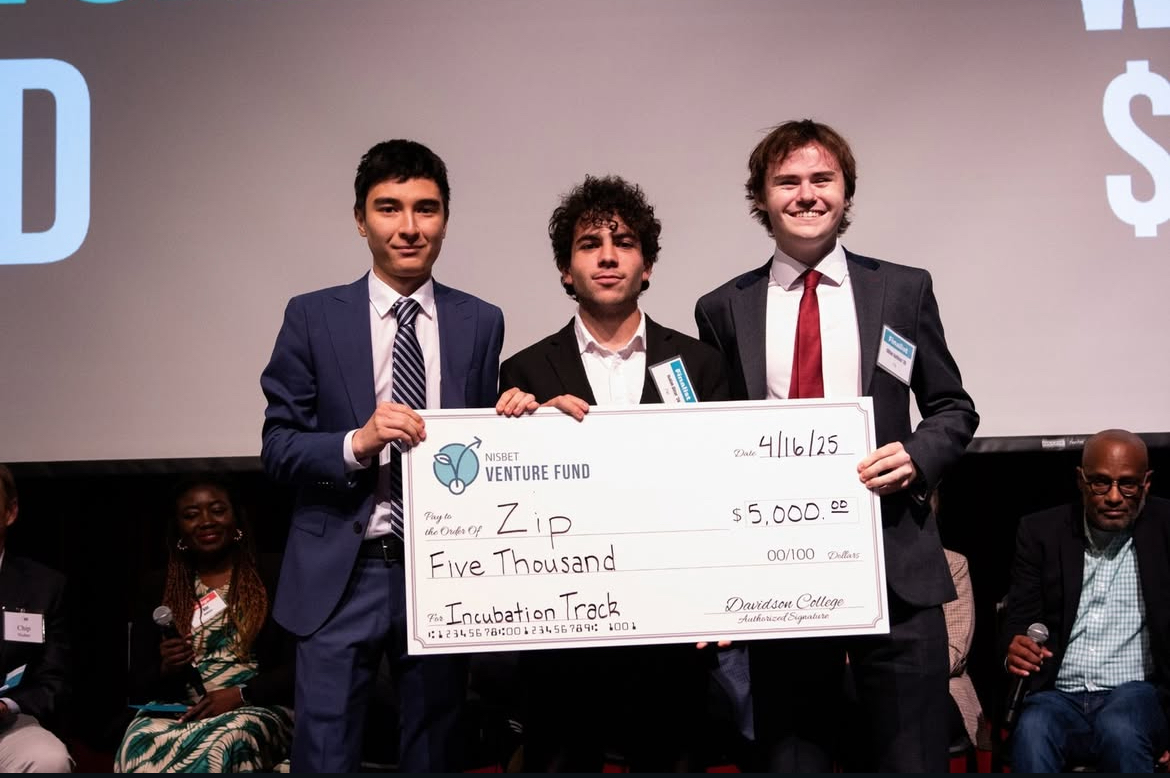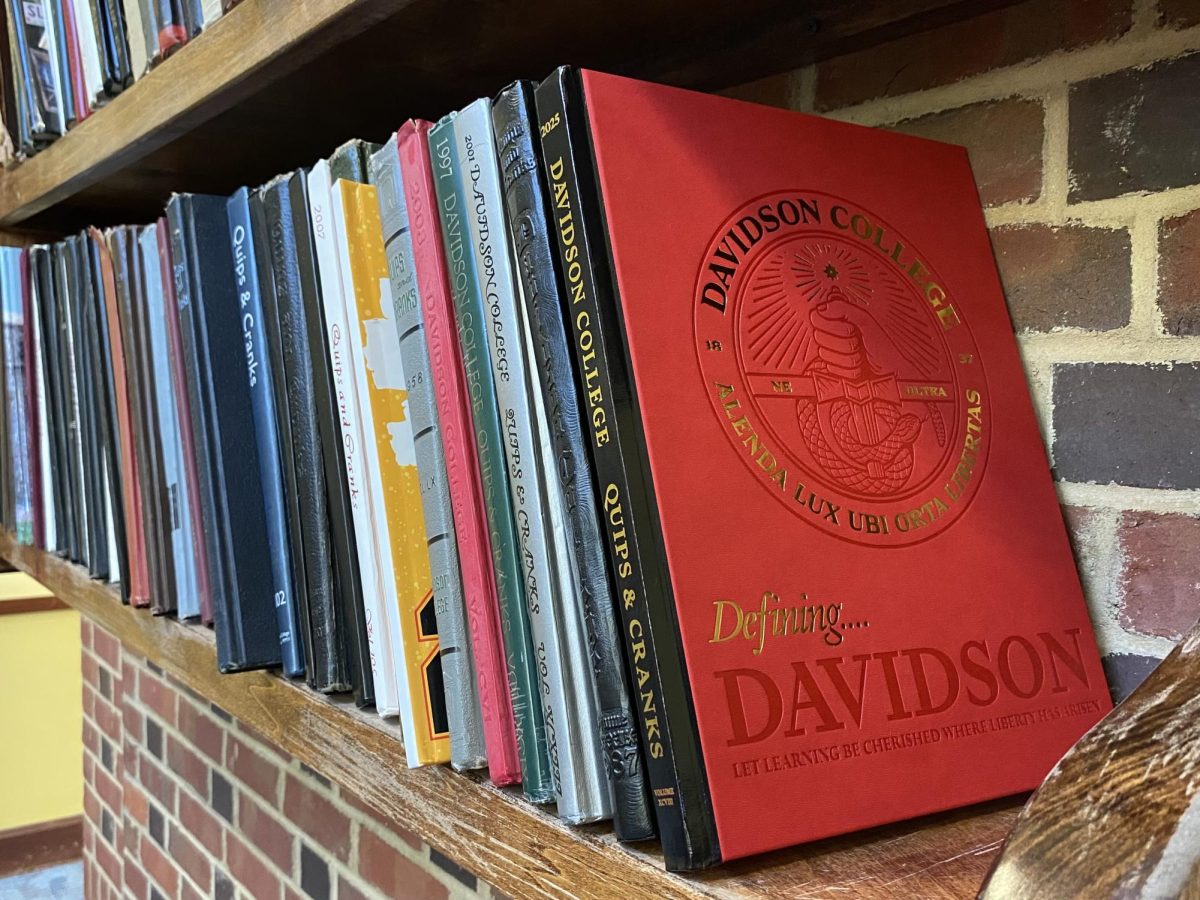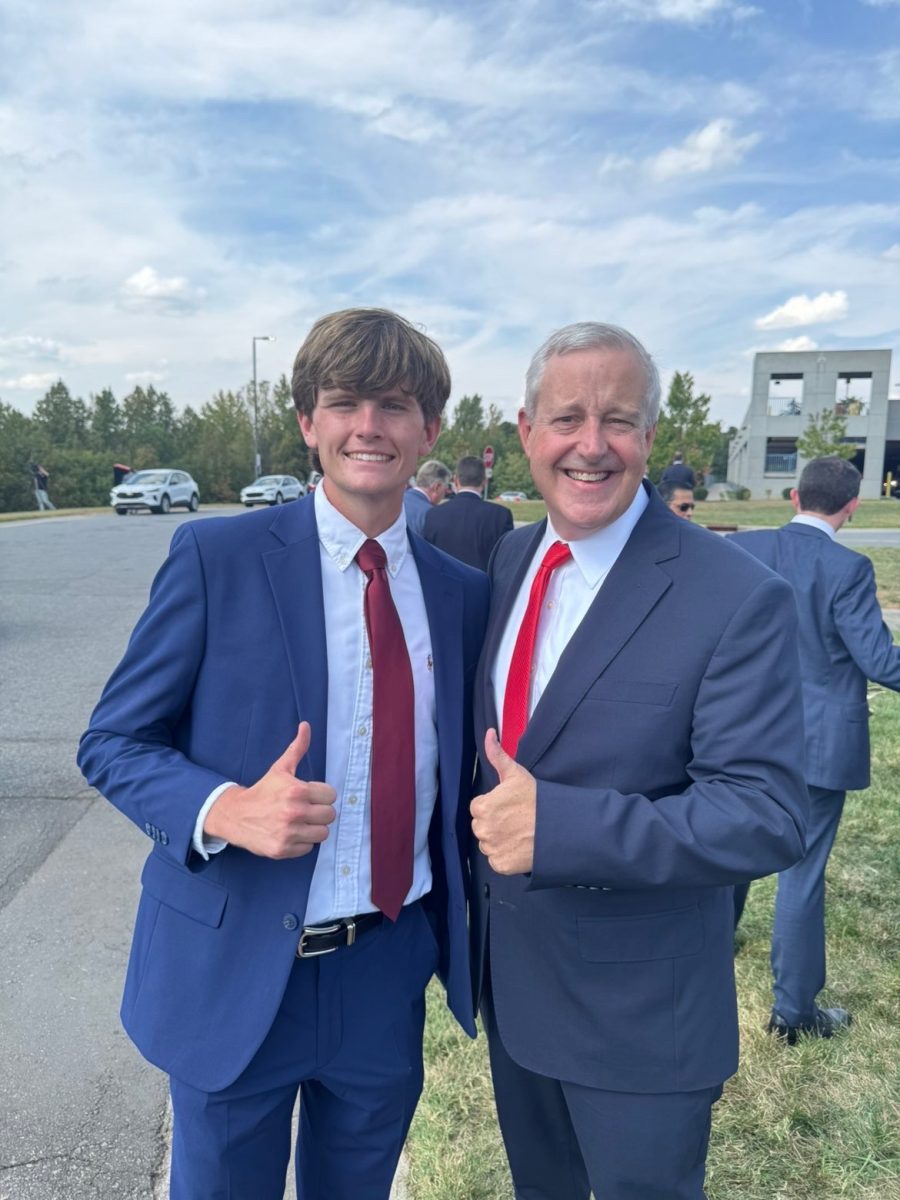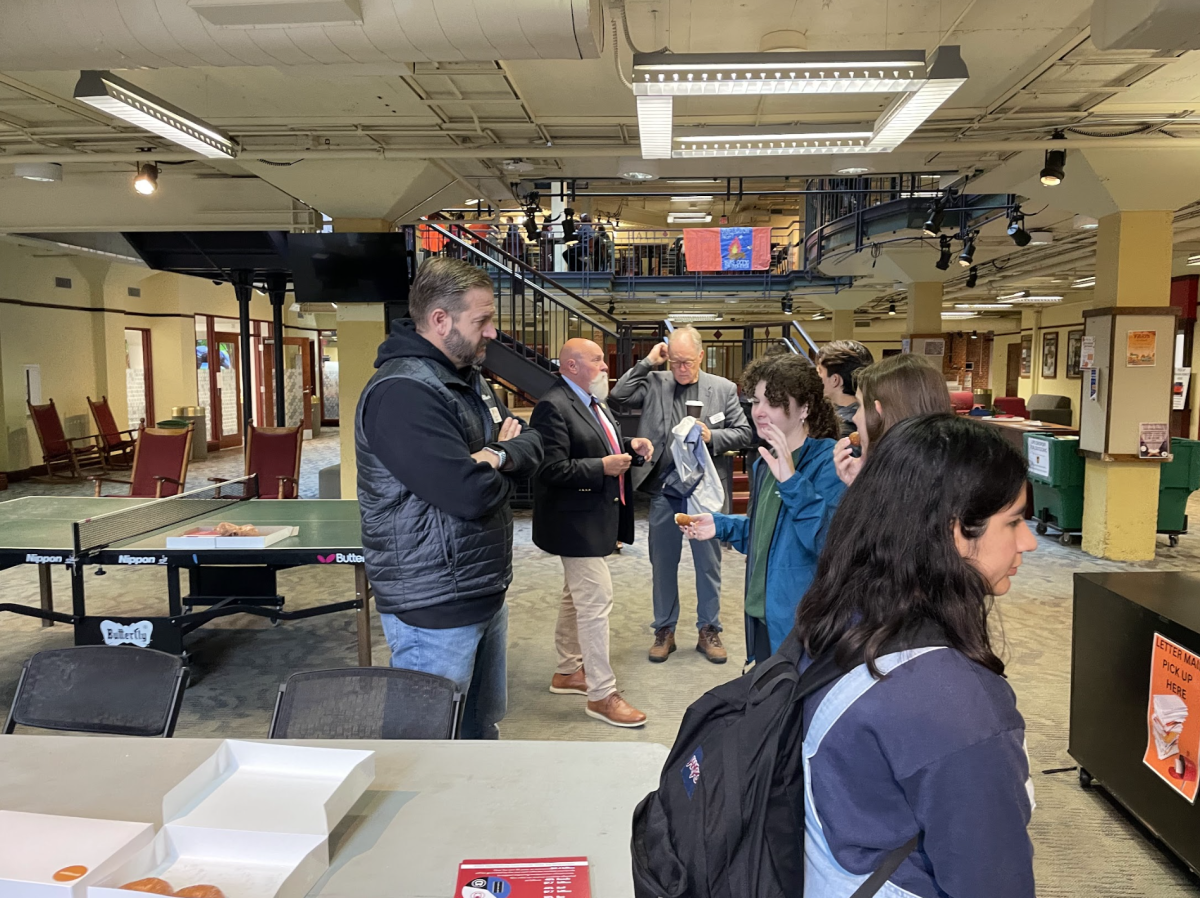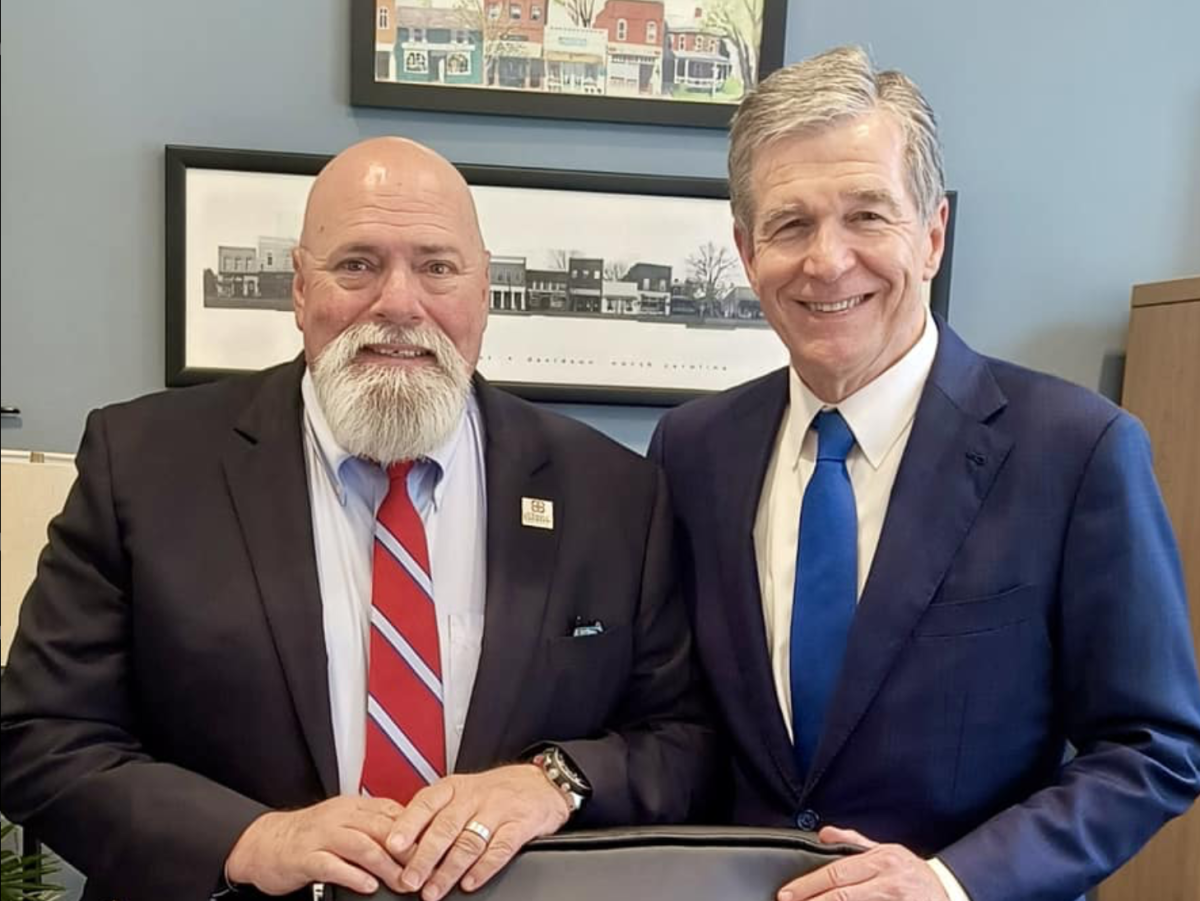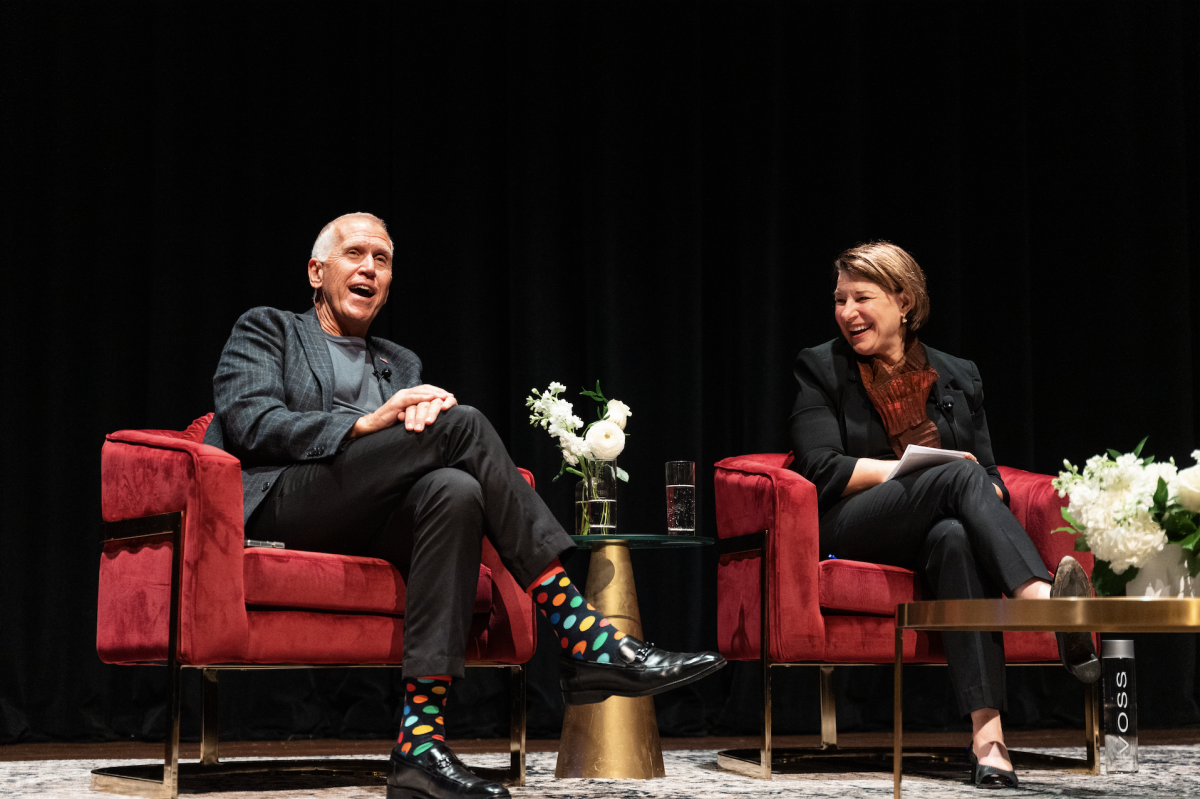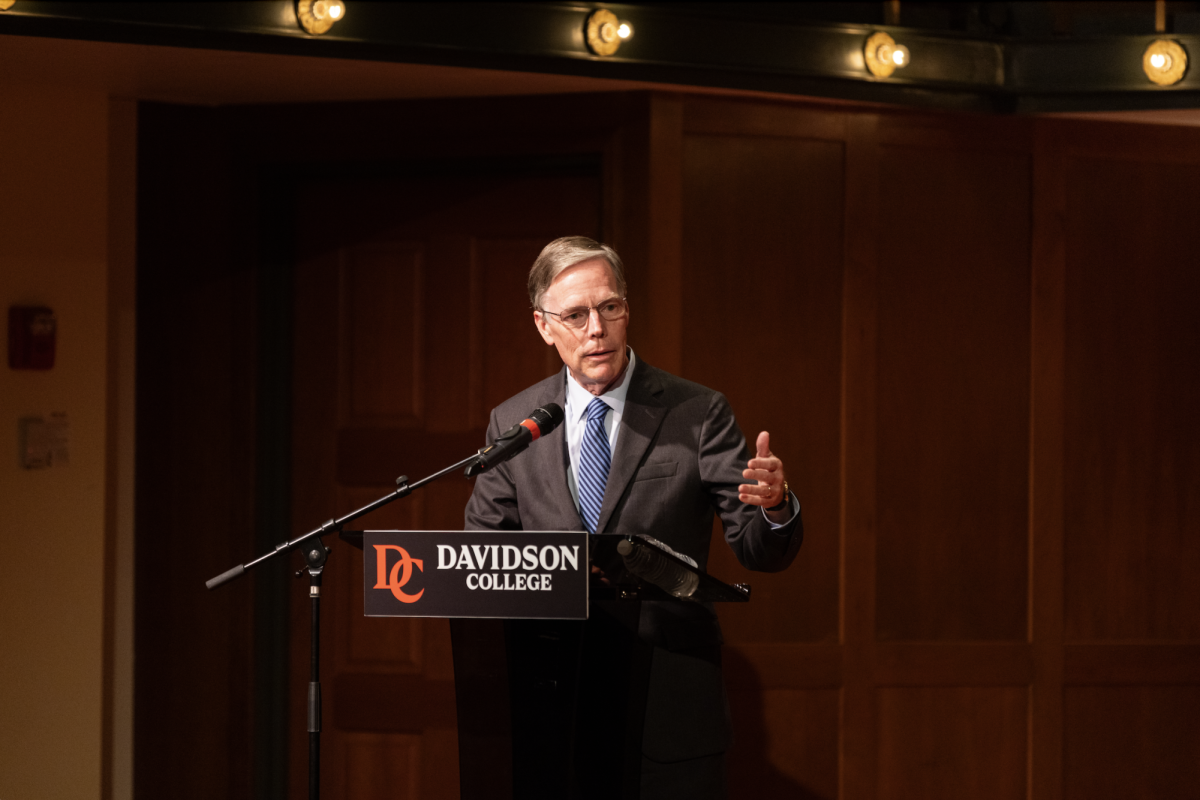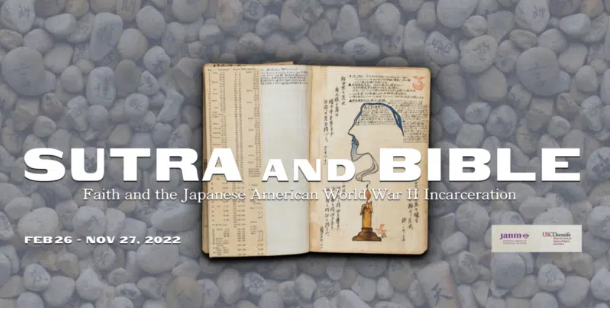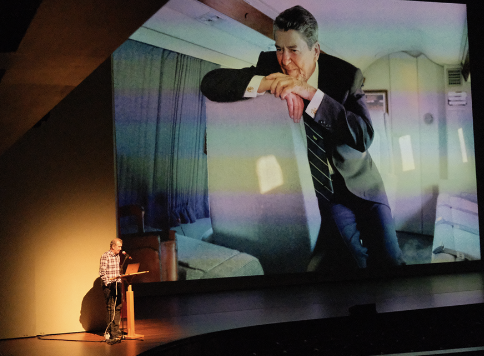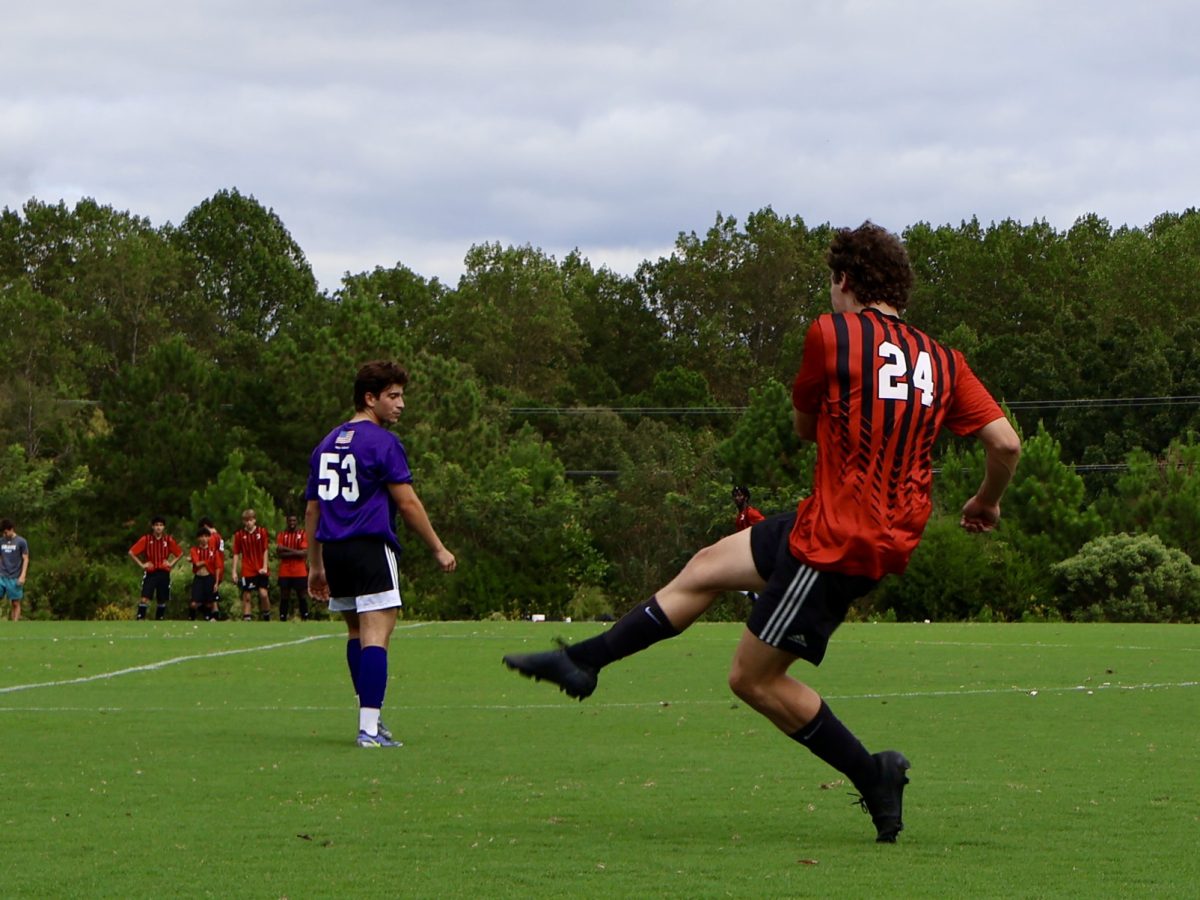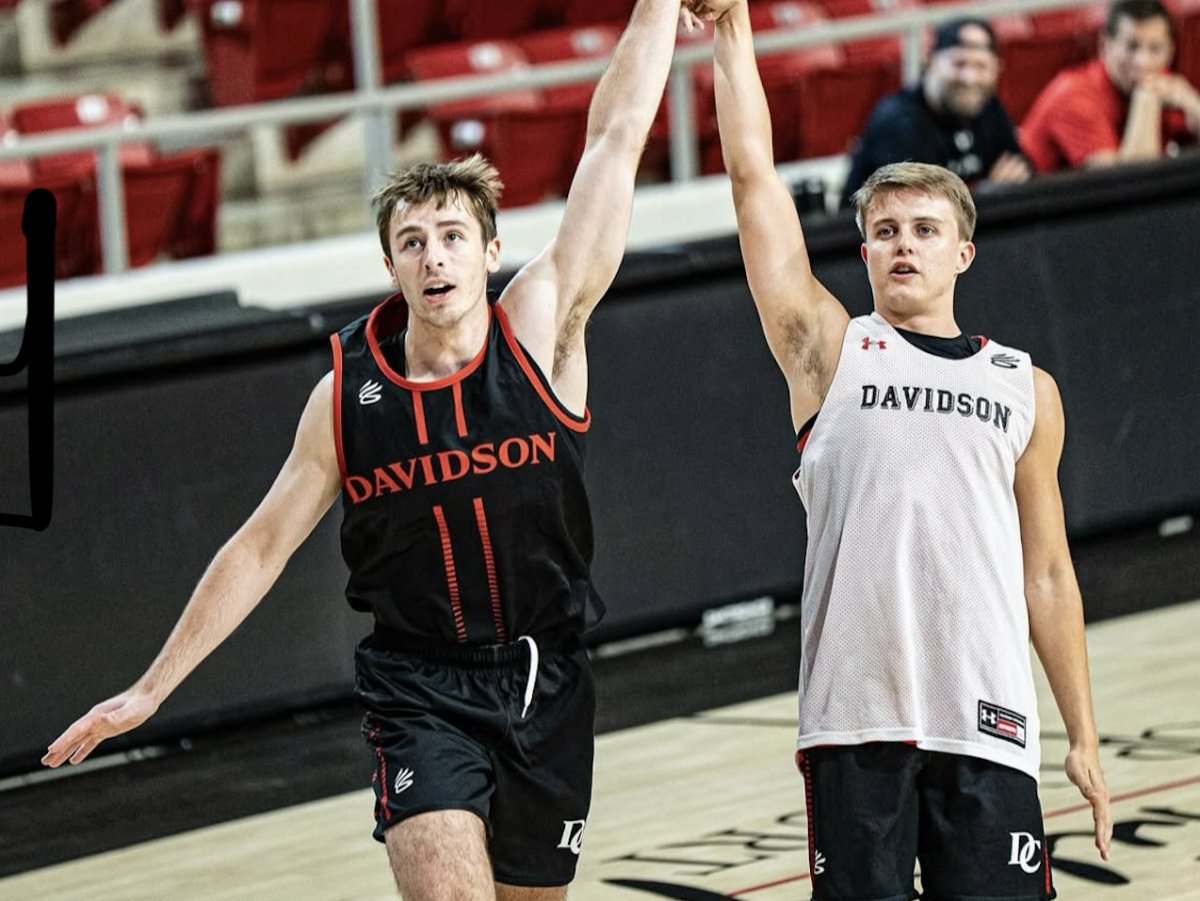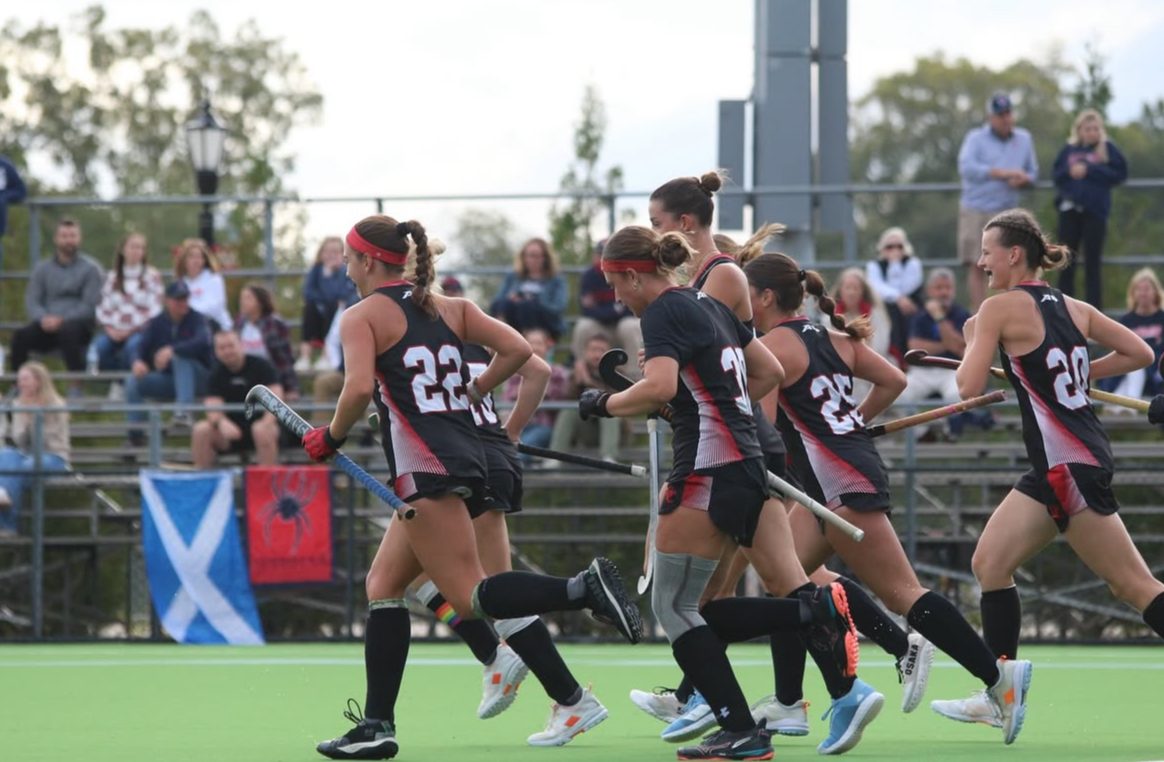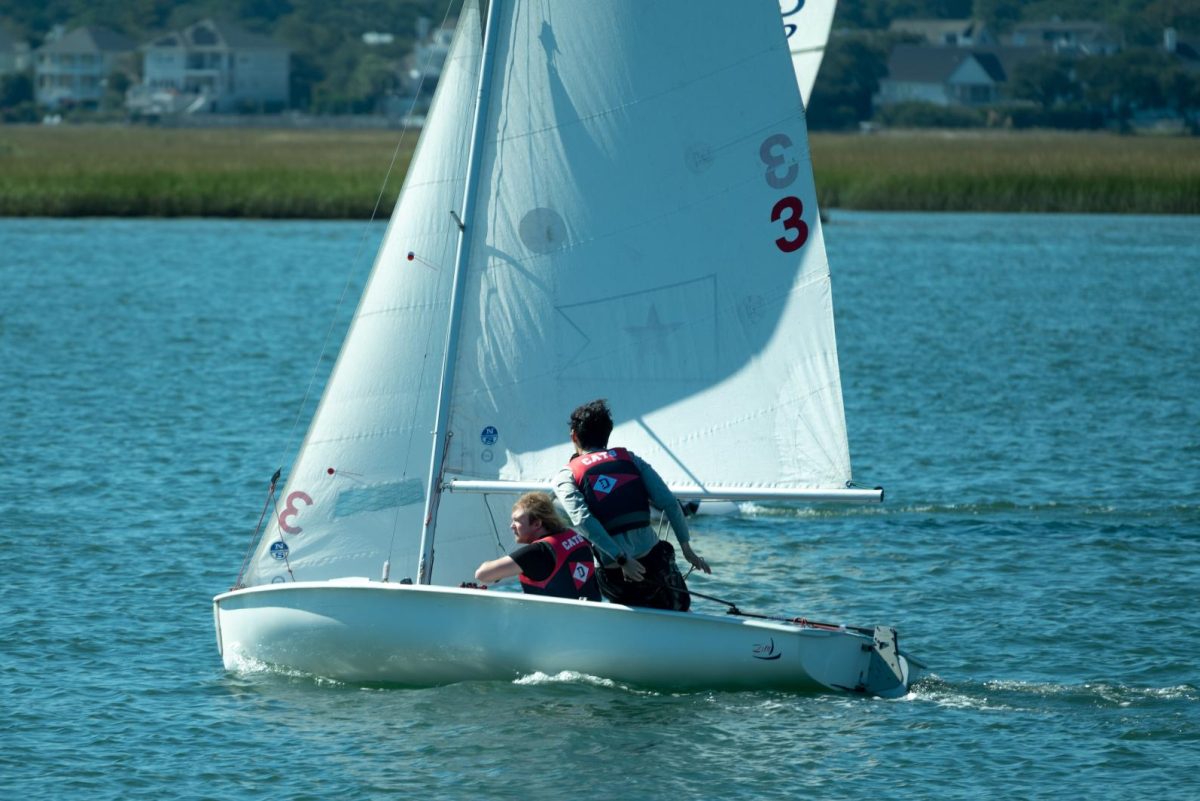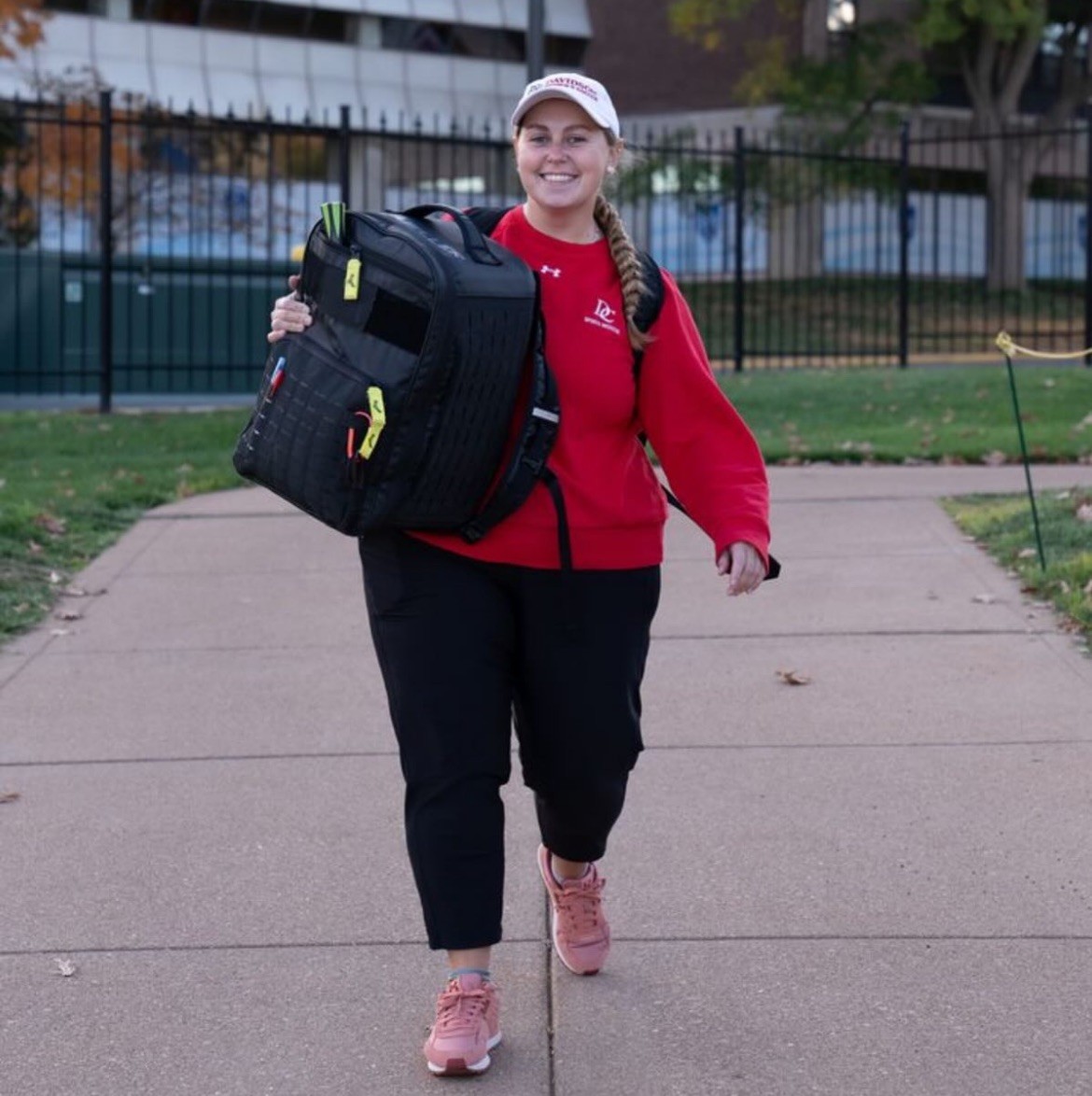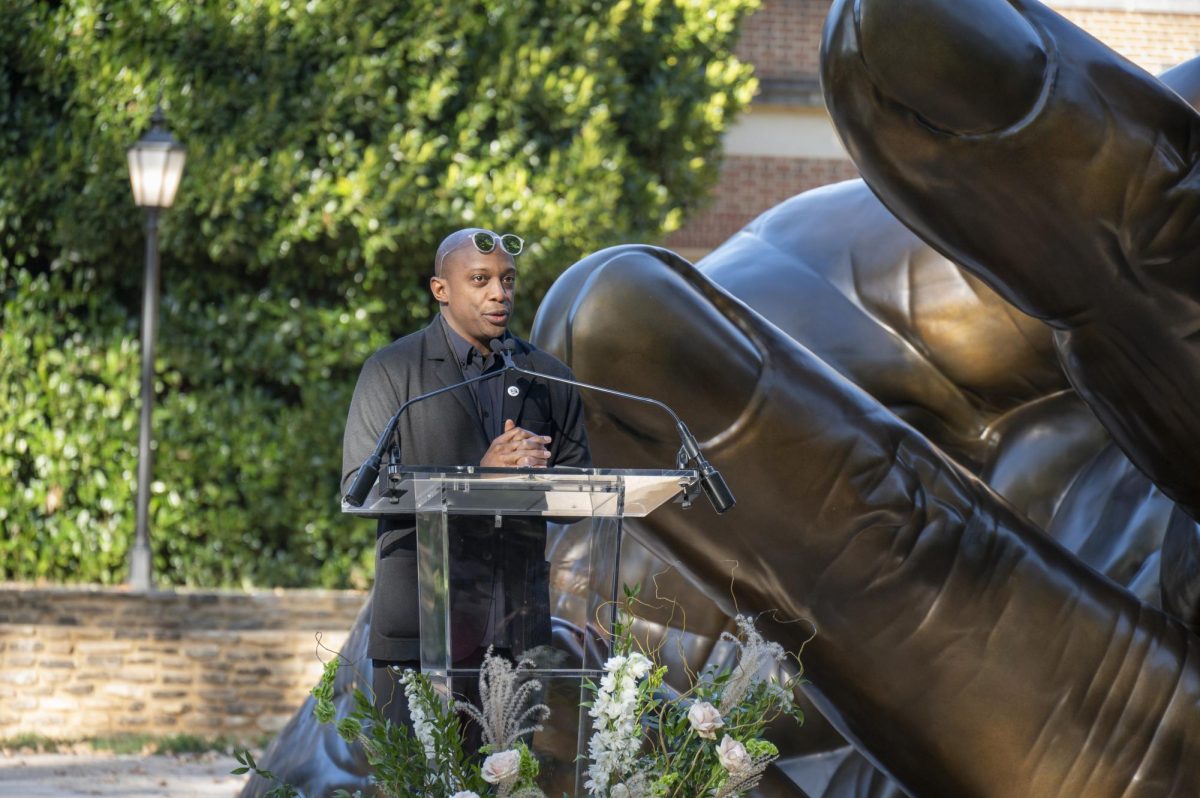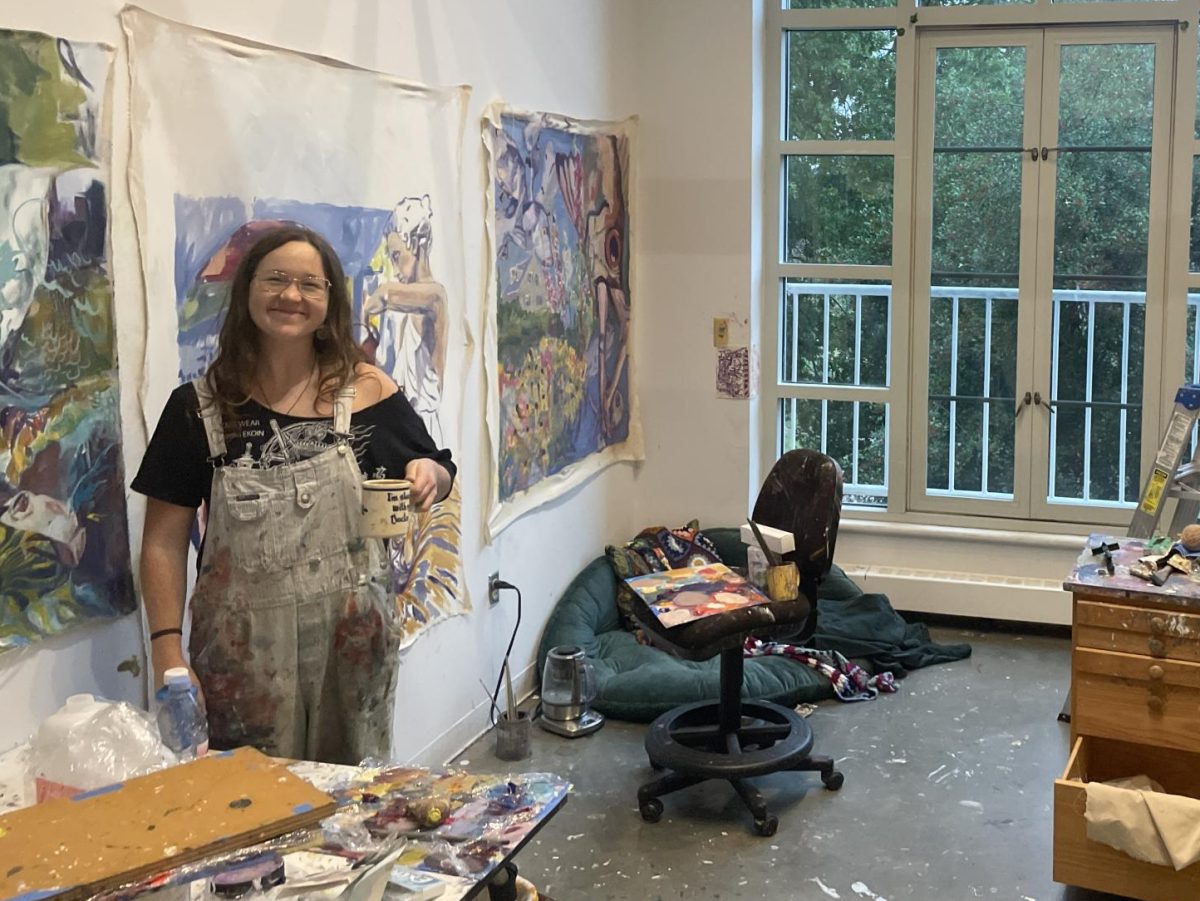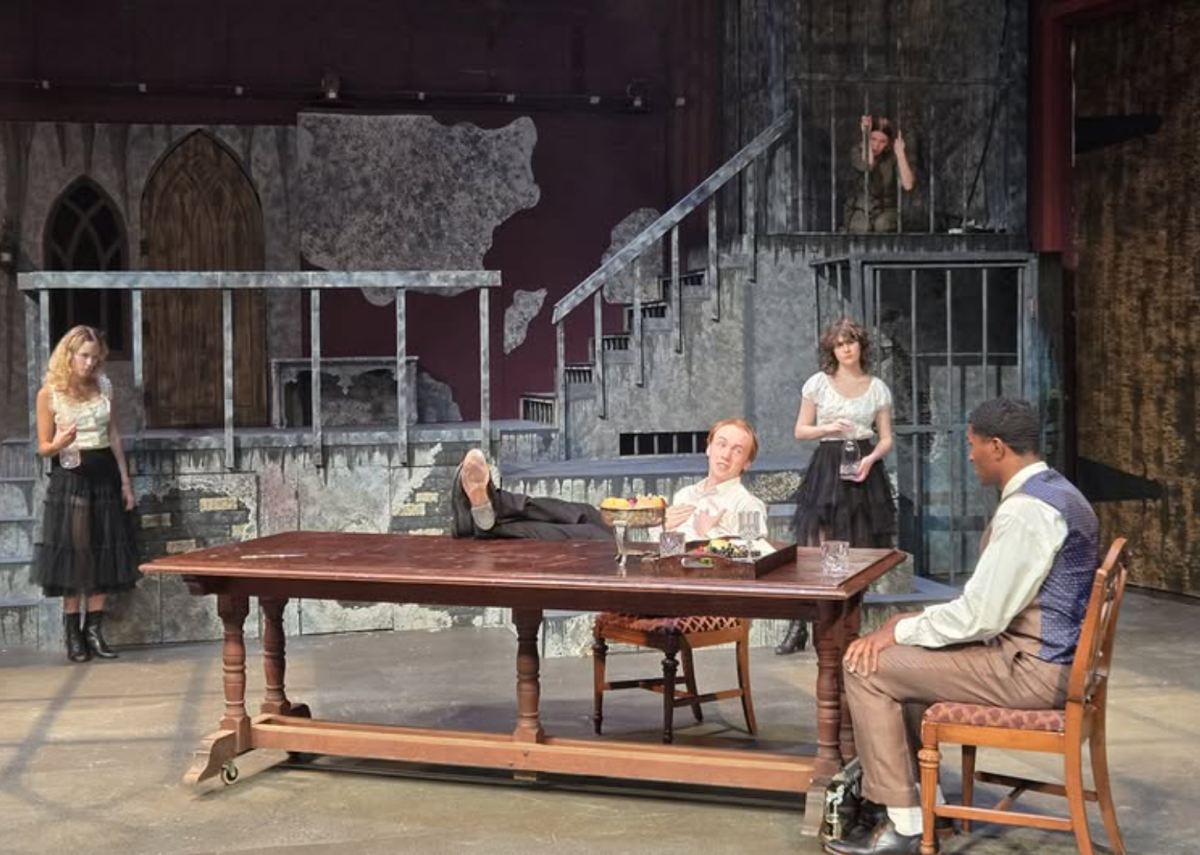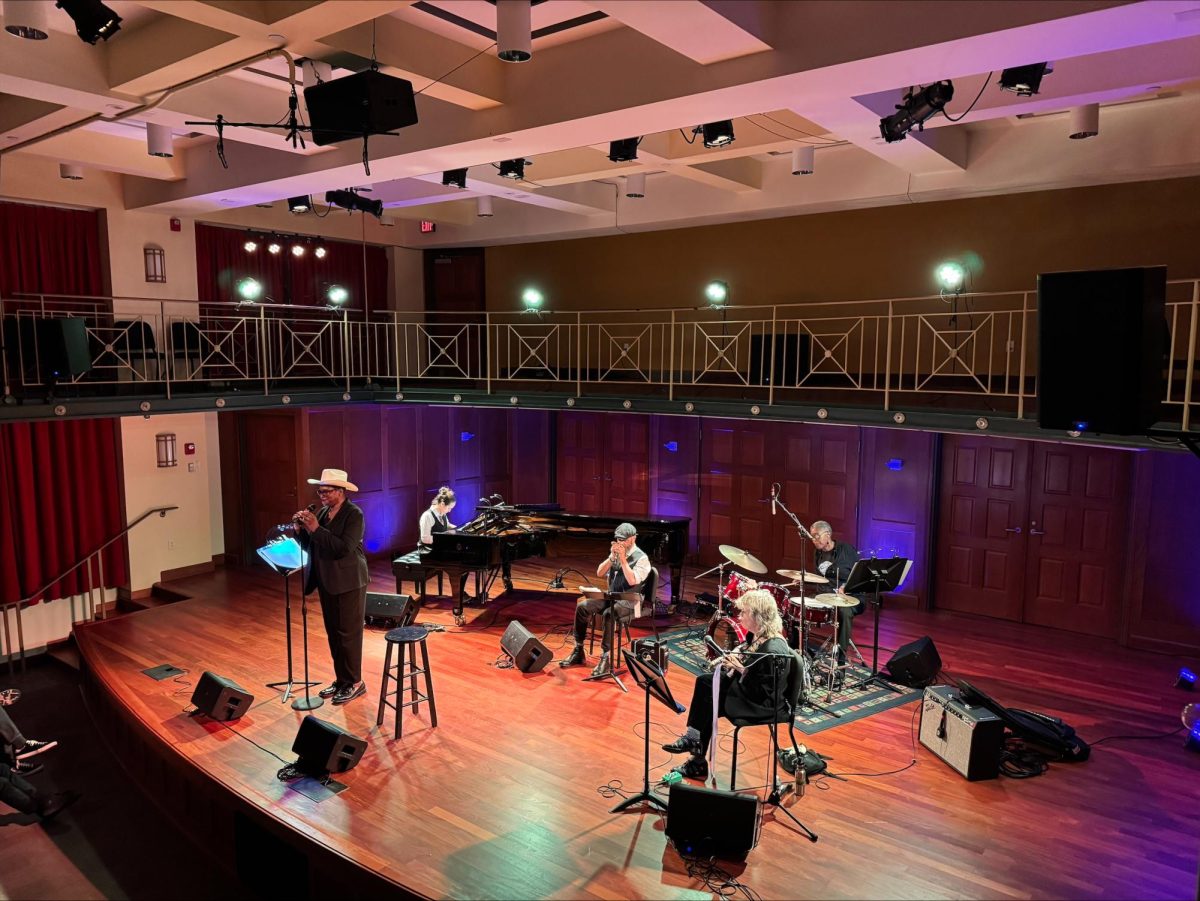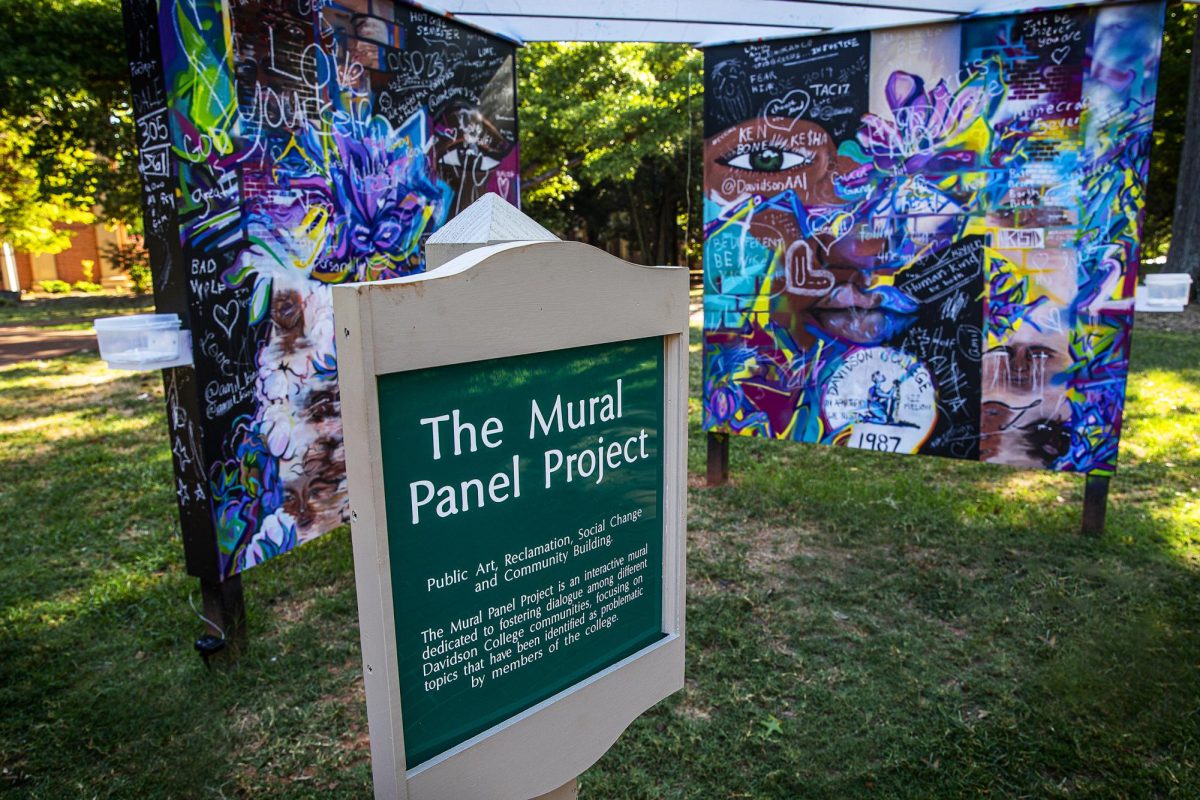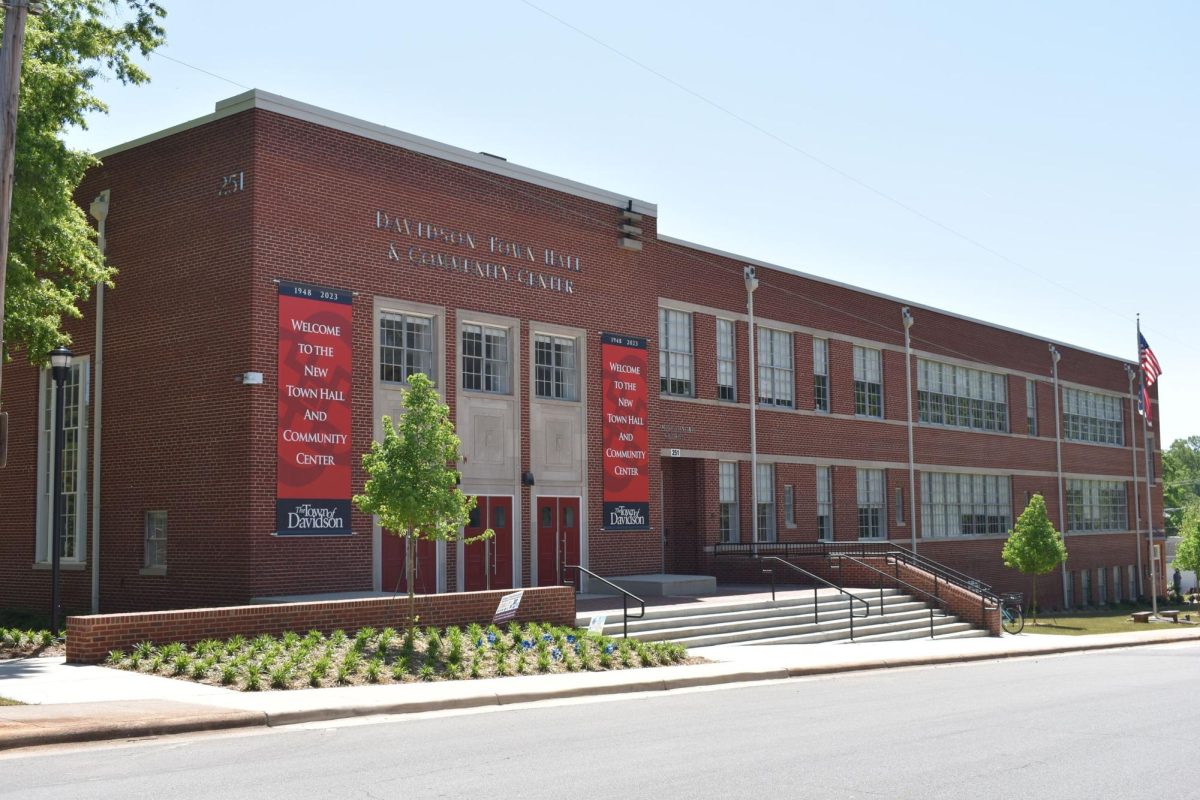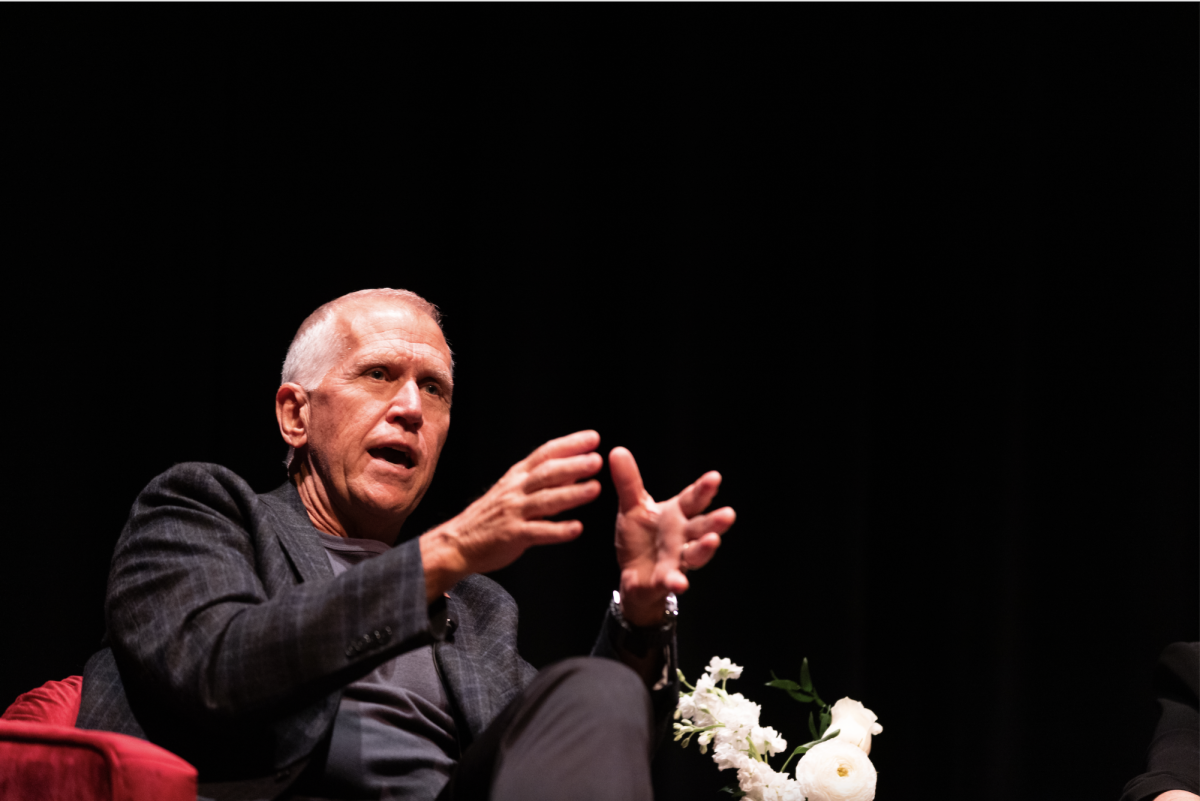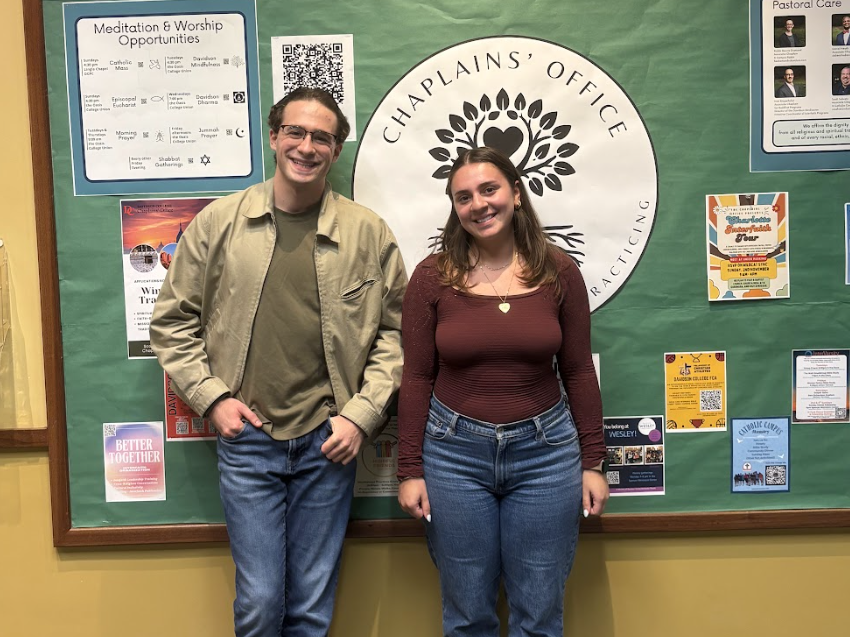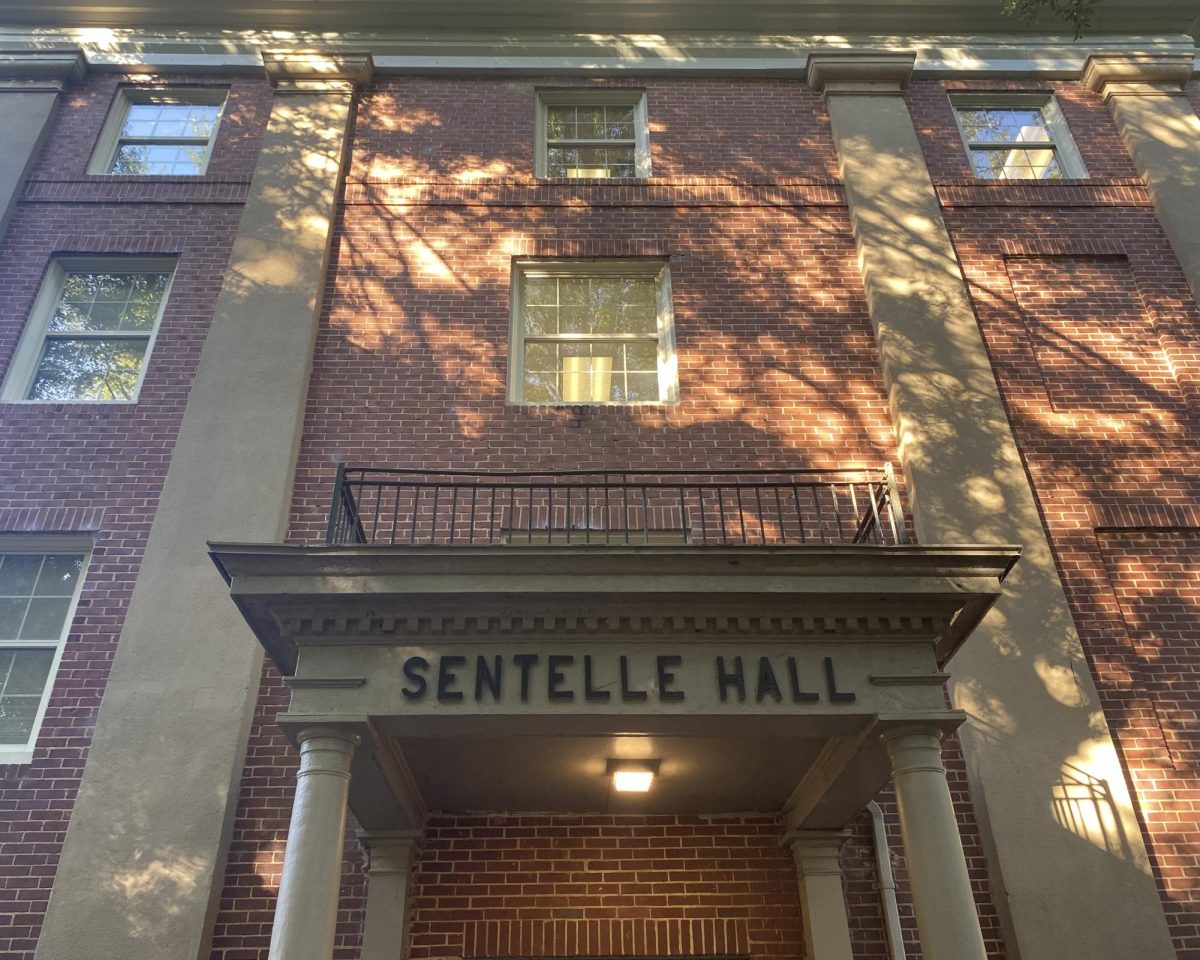On Feb. 13, the Winter Deliberative Forum took place in the Lilly Family Gallery, addressing a pressing question: What role should religion play in the public square and in policymaking? The first part featured five panelists of diverse backgrounds and perspectives discussing the above issue, while the second part had participants break out into small groups and further discuss with a facilitator from the Deliberate Citizenship Initiative (DCI).
The initial discussion was moderated by Dr. Jason Blum, an associate professor at Davidson College. “This conflict between religious freedom and anti discrimination […] is a really big problem today, and I want more folks to be talking about it and to be recognizing it as a problem,” Blum began.
The first question, in which Blum asked what role religion should play in American public life, was initially veered toward the topic of human well-being. “The role religion should play in public life has this great potential to shape moral and ethical citizens to participate in the life of the community […] when used for inclusivity and love” Nancy Petty expressed, senior pastor at Pullen Memorial Baptist Church.
Robert Destro, a professor of law at The Catholic University of America, continued to focus on human well-being. “I don’t think there’s a religious tradition anywhere in the world that doesn’t buy into some aspect of [loving] your neighbor […] It’s all about putting the human part in human rights,” Destro stated.
Destro further expanded by introducing the role of secular people into the discussion. “You’re asking the wrong question […] What role do secular people have in the public square?” Destro asked.
This question sparked further debate amongst the panelists. “There are secular religious people in public life because everybody in public life comes into the public square with a belief system: some of that’s based on religion, [and] some of that is based on no faith at all,” Brian Silva, vice president of outreach at Americans United for Separation of Church and State, stated.
Silva also noted the impact that expressing religious opinions in the public square could have on others and turned to the impact on policy. “When it comes to policy […] does the end result do no harm? That’s the big question that I think we ought to have,” Silva declared.
Dr. Hadia Mubarak, an associate professor of religion at Queens University of Charlotte, weighed the differences between expressing religion in the public square and in policymaking. “I think it would be naive for us to expect religion to not [play] a role in public life, because for those who take their religion seriously, it will guide the choices they make. However, when it comes to public policy, we do have to be careful,” Mubarak said.
The conversation took a turn with Blum’s second question, when he asked whether legal accommodations for religious groups are justified. “These exemptions are justifiable based on some of the privileges that religious institutions are afforded […] [like] tax advantages” William McKenith, pastor of Reeves Temple African Methodist Episcopal Zion Church in Davidson, said.
As the discussion continued, the panelists shared differing opinions regarding the conflict between religious liberty and anti-discrimination, especially in Supreme Court cases. “If I would win a free speech argument, I shouldn’t also lose a religion argument. So to my mind, the non-discrimination piece is not the same as the protection piece,” Destro responded.
“I think the idea of non-discrimination and protecting people from being harmed becomes the guiding factor of how we allow people to have the beliefs they want and practice those beliefs […] to bring that to their conversations in the public square. When we say we’re making a rule for all […] how can we craft that law as much as we can to do as little to no harm to people as possible?” Silva asked.
After the panel discussion ended, fellows from DCI began discussions in small groups using the DCI Deliberation Guide. “I strongly believe in the importance of the DCI because through these conversations […] everyone is able to bring their unique perspectives and experiences to the table and be listened to,” DCI facilitator Cavan Klein ‘27 stated.
“American society is very divided over a whole bunch of important things, and we need to figure out how to manage that. I don’t think having civil, responsible conversations is the silver bullet that’s going to fix all of that. But, I do think it’ll help fix some of that. […] it’s a really important goal to have,” Blum added later in an interview.
Mubarak expressed in a phone interview after the forum that she hoped small groups revisited how religious accommodations and tradition-based laws function in the public square. “It’s not that this person is trying to break the rule or ask for an exception, but the actual rules were built around the needs of others,” Mubarak said.
Blum hoped that small groups would revisit the contention of his second question. “This conflict between religious freedom and anti-discrimination […] is a really big problem today, and I want more folks to be talking about it and recognizing it as a problem,” Blum stated.
The second part of the evening proved productive to most. “Maybe their minds aren’t changed, or maybe they don’t come away with a totally different mindset, but they now know what other people experience and are able to use that in the future,” Klein said.
“Ideally, Davidson students […] are going out there into the world as people who can help foster these kinds of conversations in responsible ways,” Blum concluded.
DCI played an essential role in having a productive discussion, especially in the context of society and politics today. “We’re not as good about talking about difficult issues as we need to be. We need to do more work to foster the civic skill of having conversations in general about how our society is going to run,” Blum expressed.
Facilitated discussions are especially important to Davidson students. “I love these forum events because it’s a great way for students to get outside the Davidson bubble [and connect] students with alumni and community members,” Klein stated.

